
New York City Comptroller William C. Thompson, Jr. participated in the annual Kings County Memorial Day Parade on May 28, 2007. Pictured (l to r) are: Thompson and Brooklyn District Attorney Charles Hynes. Photo Credit: Marla Maritzer
http://www.columbiajournalist.org/rw1_freedman/2005/article.asp?subj=city&course=rw1_freedman&id=789#
CourtsCritics Question Contributions to Brooklyn DA’s Campaign Fund
By Jeneen Interlandi | ||||
| On a warm Friday evening in April of 2001, Isaac Chehebar was winding down from what had been a very typical day for him. He had just returned from visiting his grandmother, as he did every Friday before sundown and the Jewish Sabbath, when he ran into Abraham Feldman, a friend from the Gravesend neighborhood in southern Brooklyn, where Chehebar lived with his parents and siblings. Feldman had been driving around in his father’s 2000 Porsche Carrera, and he invited Chehebar to take it for a spin. Moments later, onlookers and other motorists would witness the 20 year old racing through the quiet neighborhood’s streets, at speeds ranging from 50 to 65 miles per hour. “I thought I was so cool with that car,” Chehebar later recalled, “that I could drive any way I wanted to – in and out of lanes.” Ocean Parkway has a speed limit of 30 miles per hour, partly because the median separating the main artery from the adjacent service road doubles as a neighborhood park. On pleasant days it fills up with pedestrians, mostly area residents making their way to and from the nearby shopping district. Chehebar’s joy-ride included at least two laps up and down this parkway, where people were sure to notice him driving the silver sportscar. It was on the second lap, after Chehebar had made a U-turn and was driving south, that Rima Shetman noticed him. The light at the intersection of Ocean Parkway and Avenue X had turned red, and she was waiting to cross the street with her husband Aleksandr and daughters Inna and Svetlana. “Look at this guy,” she said, as Chehebar approached the red light. It was the last thing 15-year-old Inna and her 10-year-old sister Svetlana would hear their mother say. Chehebar had been weaving in and out of each lane to keep the Porsche moving through the mildly congested traffic. When he reached the intersection where Rima Shetman stood with her family, he was traveling more than 50 miles per hour, according to the motorists he passed, and there were no openings ahead of him. To avoid a car that had the right-of-way and was clearing the intersection from the opposite direction, he cut the wheel hard to the right, losing control of the Porsche, sliding into the median and striking Inna, Svetlana and Rima Shetman. Aleksandr Shetman ran after the Porsche, screaming, as it carried his family several feet before coming to a stop against a park bench and a tree. The force of the impact killed Inna Shetman instantly; her sister Svetlana died hours later at Coney Island Hospital. Their mother, Rima Shetman, sustained major trauma to her head and torso along with multiple fractures in her arms and paralysis of her right leg. She would survive only after several tenuous months at Lutheran Medical Center. When the car finally came to a stop, Chehebar stepped out, over the body of Inna Shetman. He and Feldman had escaped with cuts and bruises. On May 25, 2001, a grand jury at New York State Supreme Court in Brooklyn indicted Chehebar on 11 counts, including two each of second-degree manslaughter and criminally negligent homicide. Although a conviction on these charges would have been enough to warrant several years behind bars, Brooklyn District Attorney Charles Hynes arranged a plea bargain with Chehebar that spared him a lengthy prison sentence. On Feb. 26, 2002 Chehebar pleaded guilty to both counts of criminally negligent homicide in exchange for which Hynes dropped the remaining nine charges and sought a six-month sentence as opposed to a six-year sentence. Chehebar ultimately served four months on Rikers’ Island, from March to July of 2002, followed by two years of house arrest. He was also sentenced to 1,200 hours of community service and prohibited from driving for five years. In the years since Isaac’s plea bargain, nearly $80,000 has flowed from friends, neighbors and business associates of the Chehebar family to Hynes’s campaign coffers. In recent months, the plea bargain and subsequent donations have come under scrutiny by Hynes’s opponents, including State Sen. John Sampson and former Assistant District Attorney Arnold Kriss, both of whom attempted to unseat him during last September’s Democratic primary. In response to the allegations of misconduct, Hynes has pointed out that the victims’ families, including Aleksandr Shetman who lost his only children, endorsed this deal. Between 2001 and 2005 more than 30 members of Sephardic Bikur Holim, the Brooklyn synagogue where the Chehebar family worships, contributed a total of nearly $80,000 to the Hynes campaign, as shown by comparing Hynes’s campaign-finance disclosures to the Sephardic Bikur Holim web site. The Chehebar family owns the well-known Rainbow Apparel shops based in Brooklyn and founded the Accessory Network Group, which does approximately $160 million in business annually according to Brandweek, an advertising-industry magazine that profiled the company. The family of MartinStein, vice president of the Accessory Network Group, gave $6,100. Weeplay Kids, a children’s clothing store owned by Alan Maleh, a fellow Sephardic Bikur member, contributed $10,100. The Chera family, also Sephardic Bikur members, donated $11,000 to Hynes. Sampson has called these donations “blood money,” adding, “It tells people that if you have money, you don’t have to face justice.” The allegations of impropriety come at a difficult time for the embattled district attorney, who has fended off two strenuous challenges to his incumbency in the years since he stuck a deal with Chehebar. In 2001, Sandra Roper, a little-known civil rights lawyer, won 37 percent of the vote, mounting the first credible challenge to Hynes’s decade-long tenure. Last year, State Sen. John Sampson won the same percentage, in a race pitting Hynes against three opponents. These near-misses were no small feat for Hynes’s challengers; to date, no incumbent district attorney in any of the five boroughs’ history has ever been defeated for reelection. Moreover, Hynes is a well-known figure in Brooklyn politics, having garnered celebrity status and wide respect in 1986 as the special prosecutor in the well-publicized Howard Beach racial murder trial. Although Hynes and Maureen McCormick, the assistant district attorney who prosecuted this case both declined to be interviewed for this article, they have pointed out that the victims of the Chehebar accident supported the offer of a lighter sentence, agreeing that Chehebar deserved a “second chance,” according to court records. “Mr. Hynes feels very strongly that the victims of this crime should be heard in terms of whether or not they accept the disposition,” McCormick said at Chehebar’s plea hearing. She then asked Aleksandr Shetman, “Is it your intention, by accepting this plea offer, to extend to the defendant a second chance to get his life together and do some good out of this horrible incident?” Although Shetman answered yes, he later told the New York Post that he was disappointed and had only agreed because he worried that Chehebar would not be convicted in a trial. A review of press releases from the Brooklyn District Attorney’s office shows that six cases involving vehicular deaths were prosecuted by Hynes from 2000 to 2005. One of those cases resulted in “the longest sentence in state history for a sober driver who killed someone,” according to a press release from Hynes’s office. Hynes and McCormick won a second-degree murder conviction against Jon Paul Lazartes after his Mercedes crashed into another car, crushing its two passengers to death. “Let this be a clear message to these high-octane terrorists on the Belt Parkway and everywhere in Brooklyn, that you will be penalized in a similar fashion for this kind of behind-the-wheel-bedlam,” Hynes said of the 20-year sentence Lazartes received. Like Chehebar, Lazartes was 20 at the time of the accident and 21 at the time of sentencing. At the same time, almost everyone involved in the criminal justice system has an incentive to plea bargain. Because plea-bargained cases move faster – taking weeks to months instead of years – judges are able to better handle their over-booked courts. For prosecutors, plea bargains guarantee a conviction and wrapping up cases quickly conserves resources, which are often scarce. New York City district attorneys suffered budget cuts of 12 percent between 2001 and 2004, according to a report issued by the Citizens’ Union. Hynes’s office lost roughly 39 percent of its assistant district attorneys in the same time period. According to both Harvard and Yale Law Reviews, more than 90 percent of convictions in the U.S. come from pleas, many of which are negotiated. “Plea bargains are generally encouraged by the court system, and have become something of a necessity due to over burdened criminal court calendars and over-crowded jails,” according to Find Law, a web site that provides legal advice to non-professionals . On the day of his sentencing, Chehebar addressed the court. “I know no matter what I say to the family it will never bring back his daughters,” he said, “But this past year has been hell for me.” He also expressed appreciation for the leniency and asked Aleksandr Shetman for forgiveness, saying that he was “filled with guilt.” After four months on Riker’s Island , Chehebar returned home and went back to work for his family’s company. In July of 2003, he was caught trying to obtain a driver’s license. As punishment, Justice Anne Feldman of Kings County State Supreme Court, who oversaw his case, revoked his permission to spend weekends at his family’s shore house in New Jersey. In August of the same year, Chehebar was found guilty of cheating on his community service. Despite warnings from both McCormick and Feldman that any violations would result in jail time, he was sentenced to additional community service. In an interview from 2004, included with the court transcripts, Chehebar sought to portray himself, not as a criminal, but as another victim in the accident that killed Inna and Svetlana. “I felt I did not deserve the sentence I received,” he said. “I come from a good family with good values.” | | |||
|
The candidates challenging Charles J. Hynes for Brooklyn district attorney called yesterday for an investigation into some campaign contributions collected by him, based on reports that the district attorney's re-election organization accepted money from people connected to the family of a driver who received a plea-bargain sentence in a fatal 2001 car crash.
The contributions, which were reported yesterday in The New York Post, amounted to about $80,000. They came from people connected to the family of Isaac Chehebar, the driver of a Porsche that struck a group of people and killed Inna Shetman, 15, and her sister, Svetlana, 10, who were walking home on a median along Ocean Parkway in Brooklyn in April 2001. Mr. Chehebar, 21 at the time, agreed to a plea arrangement for criminally negligent homicide under which he would serve six months in jail. He was released after serving four months.
Mr. Chehebar's family owns several clothing stores in Brooklyn.
"This is the height of a conflict, if ever there were one," said State Senator John Sampson, one of Mr. Hynes's challengers in next Tuesday's Democratic primary. "There is a need for this matter to be looked at by higher authorities. And it's further evidence that there needs to be a cleanup of all the corrupt mess in the borough of Brooklyn."
Another candidate, Mark G. Peters, said that the matter should be looked into by either the state attorney general or the United States attorney's office.
"I'm appalled that Joe Hynes would compromise the integrity of the office," said Mr. Peters, a former senior official in the state attorney general's office.
The third challenger to Mr. Hynes in the primary, Arnold Kriss, also called for an investigation.
Mr. Hynes issued a statement yesterday saying that it was allegations made by Mr. Kriss that led to the news reports. The district attorney defended his arrangements with Mr. Chehebar and said that he had done nothing unethical or illegal.
"Arnold Kriss's suggestion that this money was given to my campaign to pay me back for the plea, a charge that suggests that I am guilty of criminal conduct, is despicable and a vile act of desperation," Mr. Hynes said in the statement.
He added, "I personally approved the plea agreement only after the father of the two children killed as a result of Chehebar's negligence met with me and urged that the defendant not be sent to state prison because, he said, 'It will not bring back my two daughters.' "
Mr. Hynes said that the plea was approved by a State Supreme Court justice and included two years of house arrest and 1,200 hours of community service.
==================================================================
http://www.nydailynews.com/archives/news/2001/04/24/2001-04-24__they_re_putting_soil_on_my_.html
'THEY'RE PUTTING SOIL ON MY CHILDREN' Dad's cry at burial of car victims
Tuesday, April 24th 2001, 2:21AM
A brokenhearted father's sobs and tears resounded in a chapel and cemetery in Brooklyn yesterday as he buried his two daughters, who were mowed down by an out-of-control car Friday night.
"They're putting soil on my children," Aleksandr Shetman cried in Russian as his daughters Inna, 15, and Svetlana, 10, were buried on a cloudless morning at Washington Cemetery, Midwood.
Weak with grief, Shetman leaned on a friend for support as he and 100 other mourners said goodbye to the young girls they described as smart, motivated and angelic.
Shetman's wife, Rima, injured in the Gravesend accident, remained in a coma at Lutheran Medical Center in Brooklyn.
Yesterday's funeral began a week in which seven Brooklynites will be remembered not only for how they lived but for the tragic accidents in which they died. Mourners will gather in Fort Greene on Thursday to attend services for five family members killed when their minivan slammed into a city bus in Crown Heights.
Rabbi Menachim Zarkh, who led services for the ambitious girls - Inna hoped to become a doctor and Svetlana wanted to be a teacher - said afterward that Shetman was in shock. "He's trying to wake up," Zarkh said.
Speaking in both Russian and English, he urged the standing-room-only crowd to honor Inna and Svetlana's giving and caring manner.
Elaine Ingino, Svetlana's fifth-grade teacher, described her pupil as a brilliant and voracious reader who "would have gone very far." Svetlana also acted as a school mediator, helping classmates resolve problems.
After the girls were buried side by side, a dozen of Inna's classmates filed past and placed rocks on the gravesite.
"It was a way to show respect," said Sharai Lewis, 15. "[Inna] was one of the sweetest people. She didn't have a mean bone in her body. She was gorgeous."
The family of Anthony Abbate Jr., 15, who suffered a broken leg in the Gravesend accident, filed a $25 million lawsuit in Brooklyn Supreme Court against Issac Chehebar, the 20-year-old driver of the Porsche that jumped a curb on Ocean Parkway near Avenue X and plowed into the helpless pedestrians.
"My son had an angel on his shoulder," said Abbate's mother, Jacqueline. "It's a horrendous thing that happened. [Chehebar] took two lives just because he didn't want to wait for a light."
Stephen Flamhaft, Chehebar's attorney, said his client was "very sorry for what happened."
Chehebar has asked his rabbi to apologize on his behalf to the victim's families, Flamhaft said.




































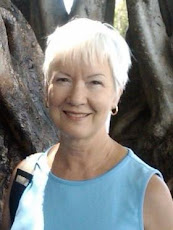

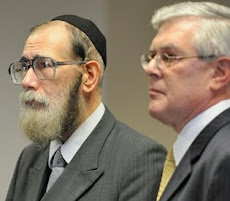

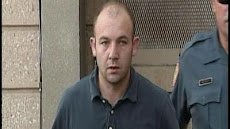









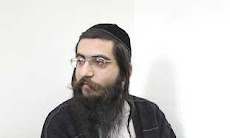





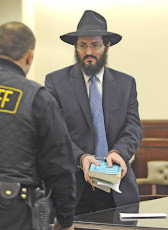














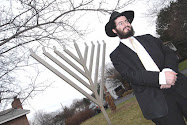




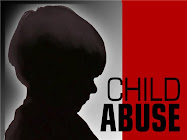













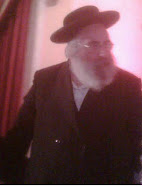



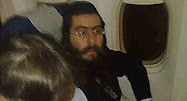




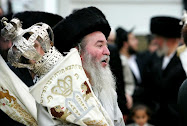


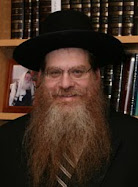












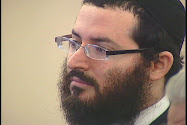
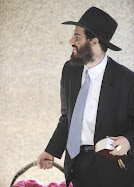
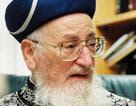









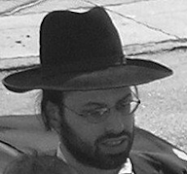

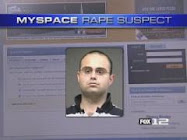









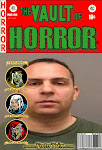











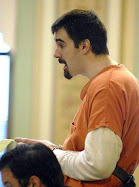


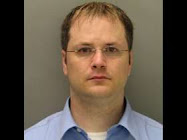


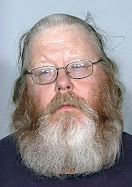

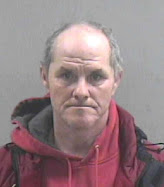
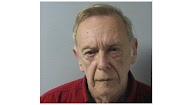
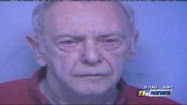













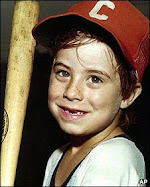



















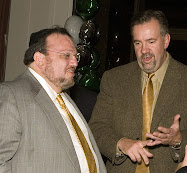
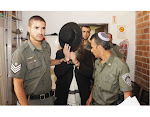



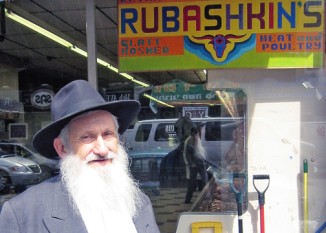


























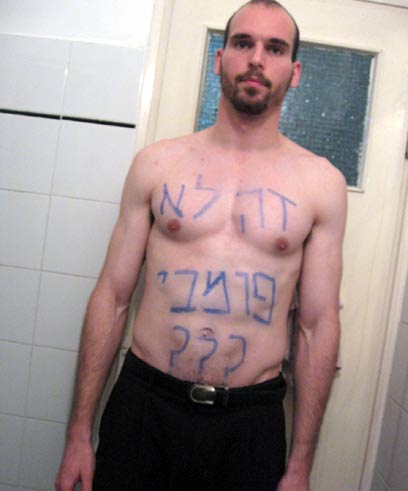
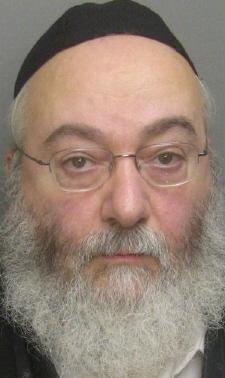












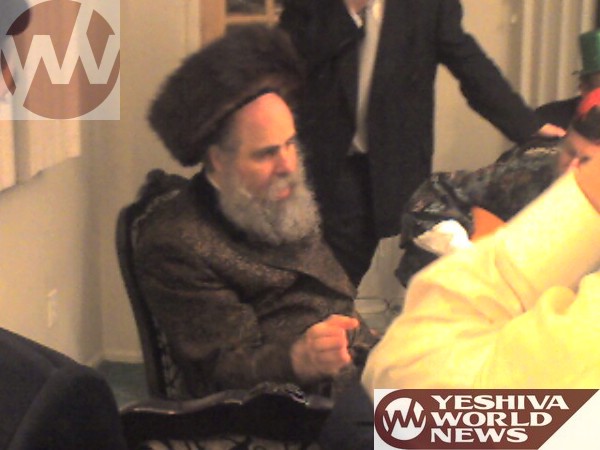









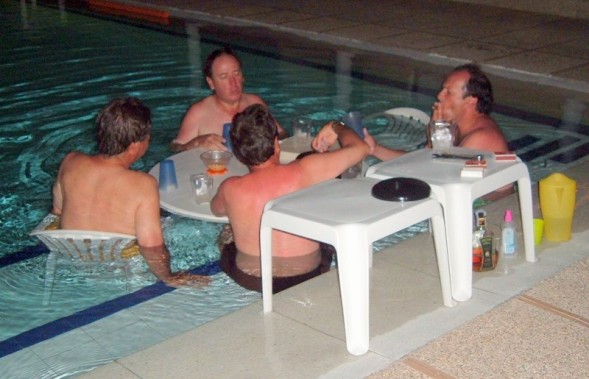

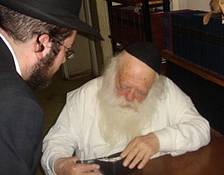

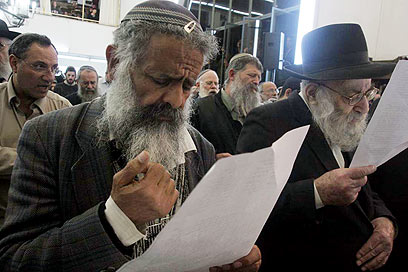
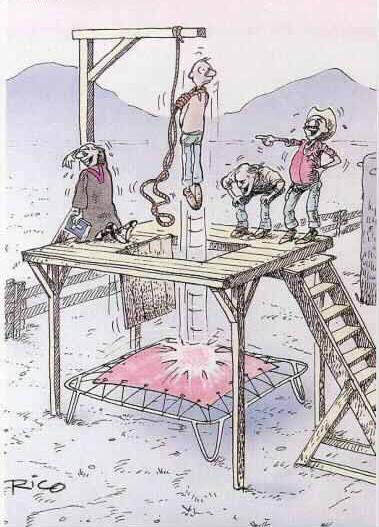



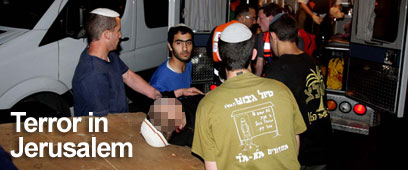
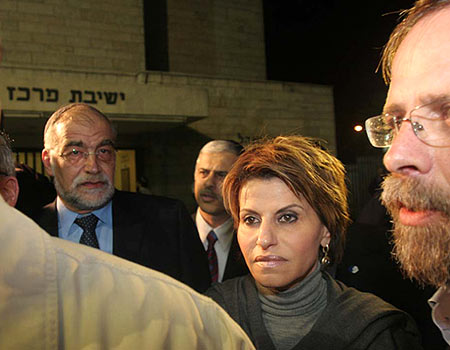
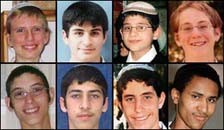
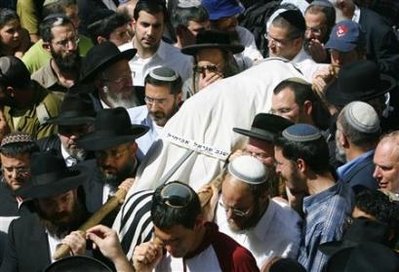
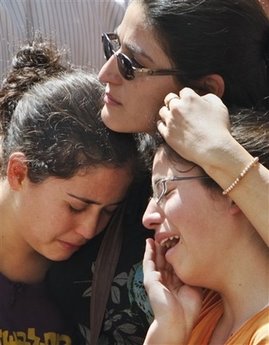





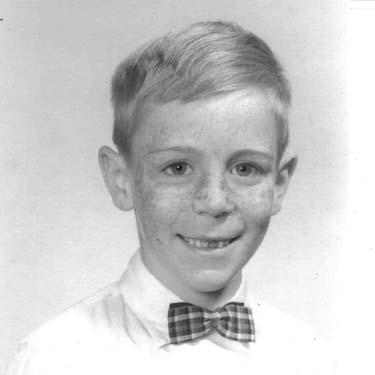







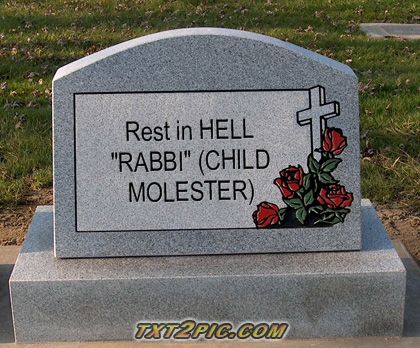








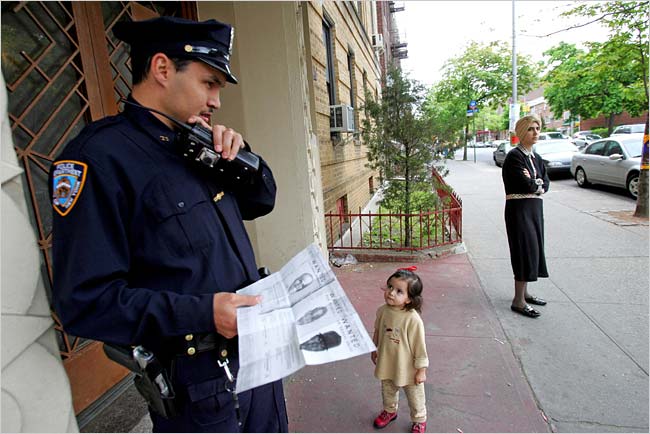


















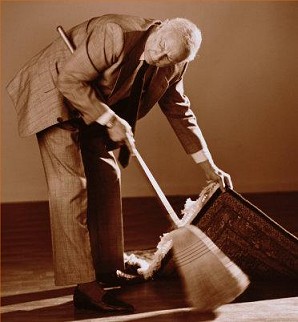









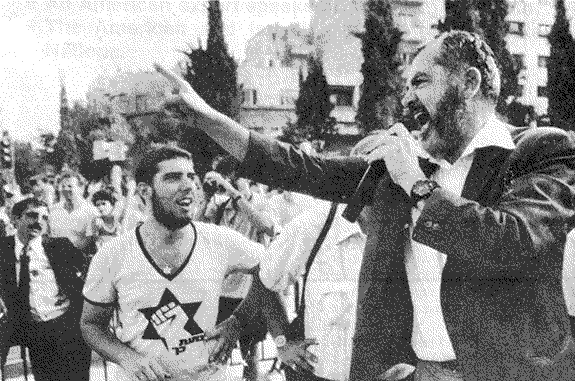



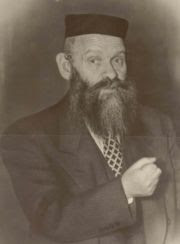




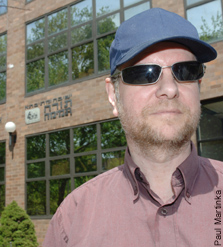


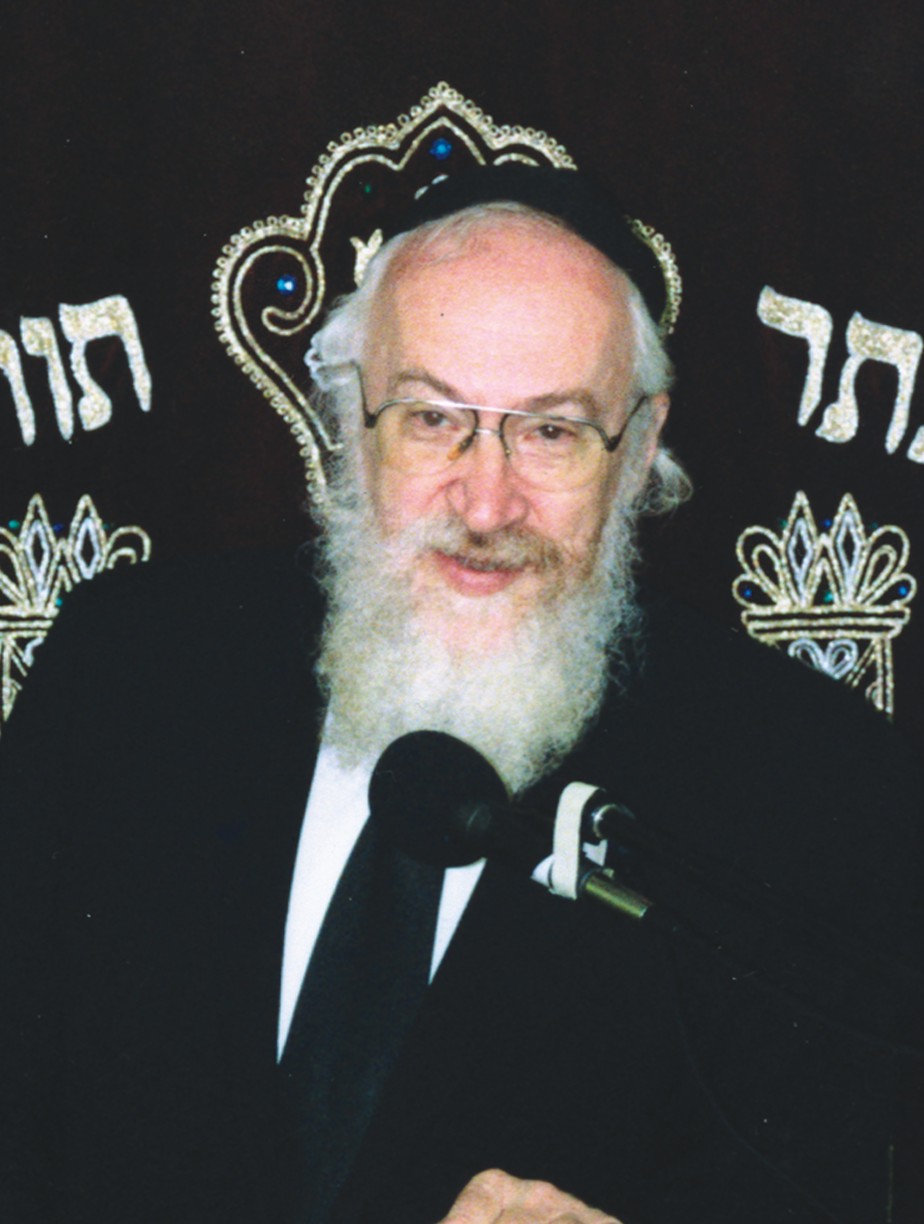














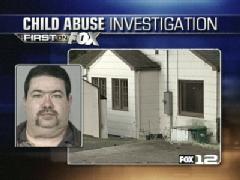
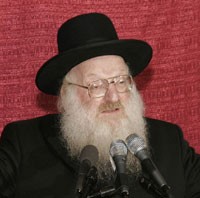

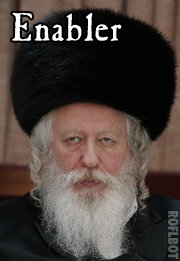




















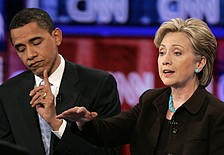












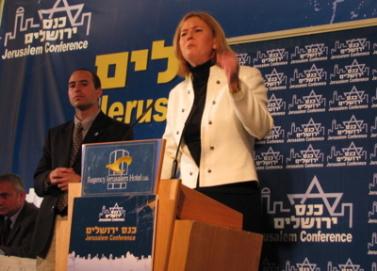



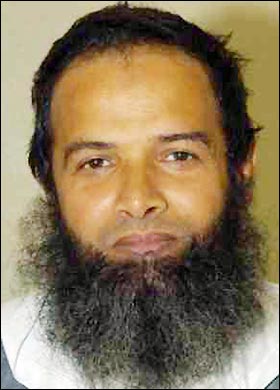


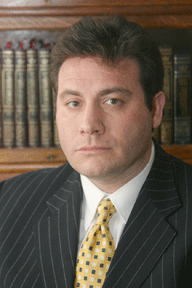

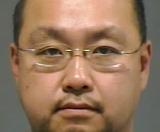
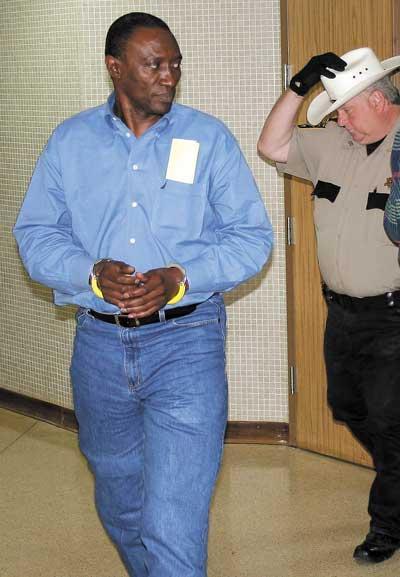

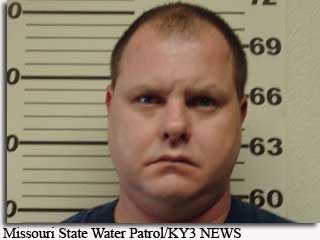



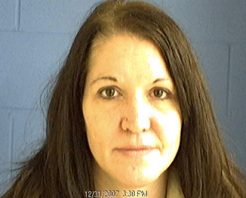


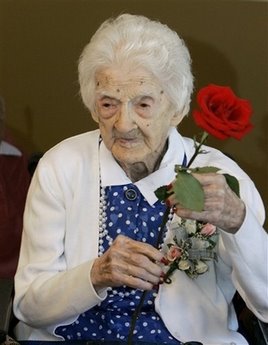

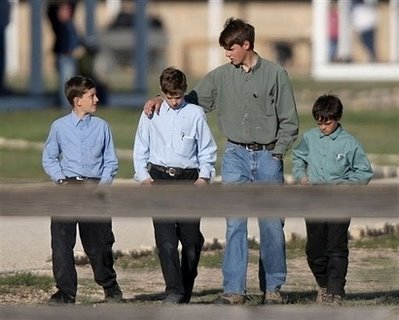



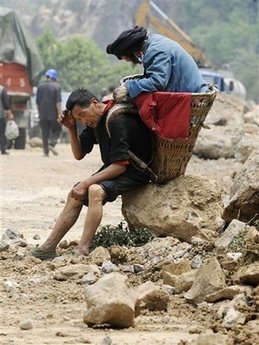





51 comments:
I couldn't help but shed a few tears when I read this post.
Speaking in both Russian and English, he urged the standing-room-only crowd to honor Inna and Svetlana's giving and caring manner.
....,....,.....,,.........,.,,,,,..,,
If there should be any solace at all from this tragedy, it would be to honor the victims (no, Chehebar you're the criminal and not the victim).
“Let this be a clear message to these high-octane terrorists on the Belt Parkway and everywhere in Brooklyn, that you will be penalized in a similar fashion for this kind of behind-the-wheel-bedlam,” Hynes said of the 20-year sentence Lazartes received. Like Chehebar, Lazartes was 20 at the time of the accident and 21 at the time of sentencing.
2 little girls, sisters, dead. MOTHER IN A COMA. His family mowed down by a careless and reckless motorist. Father is left burying his only children and weeping uncontrollably. WHY? WHY? WHY?
All because Chehebar didn't mind putting others lives at risk. He preferred the thrill of the moment in exchange for taking human life.
All because a young driver caused a very deadly and serious auto-life wreak. All because of reckless negligent homicide.
And then Joe Hynes gift wraps a very lucrative "plea deal" in favor of the criminal.
Hynes is obviously going very lenient and contradicts a similar prosecution in which he demanded and got the maximum sentence on what people can make a case was not as strong as the Shetman injustice.
In each case this is the scenario. Hynes intimidates, double talks, and reassures the victims that letting the criminal off the hook is a good deed. By the time the victims find out that Hynes had swindled an agreement out of them it's too late to do anything. Once again Charles. J. Hynes has manipulated justice. By doing so he allows a man who is the Jewish version of O.J simpson (molester kolko) to continue preying on children and put other lives at risk. It's a major miscarriage of justice. All the survivers and their families are left asking - why?
>>>>>
“Mr. Hynes feels very strongly that the victims of this crime should be heard in terms of whether or not they accept the disposition,” McCormick said at Chehebar’s plea hearing. She then asked Aleksandr Shetman, “Is it your intention, by accepting this plea offer, to extend to the defendant a second chance to get his life together and do some good out of this horrible incident?” Although Shetman answered yes, he later told the New York Post that he was disappointed and had only agreed because he worried that Chehebar would not be convicted in a trial.
>>>>>
It sounds like Hynes made it sound to Aleksandr Shetman like this was a weak case with a low conviction rate. Typical ploy by a dirty politician. Something is definitely legitimately loose in the brain of Mr. Hynes.
I too question the integrity and trustworthiness of screwy Hynes. He is not being forthright. He is acting more like a defense attorney than as a Prosecutor.
Since when does any District Attorney not want the maximum penalty for a serious crime? Since the days when Hynes took office.
I find it very troubling that Kolko and other high profile cases all ended up in horror outcomes under the watch of Hynes.
Even if we believe Hynes that the victims family agreed to the lighter sentence, as District Attorney it was his responsibility to make sure that justice was served. He didn't do that. And that makes him an accomplice to this tragedy and the many others he has been a part of.
If this was a child of Hynes that was run over by a car, or raped by a teacher - would Hynes be this nice to the bad guys who let it happen?
If this was a child of Hynes that was run over by a car, or raped by a teacher - would Hynes be this nice to the bad guys who let it happen?
=================================
We all know Charlie would be seeking the death penalty, or the maximum prison sentence - if that were to happen to his child.
- We all know Charlie would be seeking the death penalty, or the maximum prison sentence - if that were to happen to his child.
-----------------------------
That's correct, I would chop the nuts off of any psychopath who did this to my children.
Marrying off my son brings me some sort of menuchas hanefesh and maybe even some menuchas hagoof.
I gradeh shep asach nachas too, if I'm asked to speak at chasunehs, Bar Mitzvas, or pidyon habens.
It would be my great honor to speak some divrei hisorerus and ruchniyes at the next agudah convention. Rabosei - Don't you think that I'm the most qualified to speak?
http://www.chron.com/disp/story.mpl/ap/tx/5743797.html
The Survivors Network of Those Abused by Priests, or SNAP, called on Bishop Thomas Tobin to actively seek out potential victims of Philip Magaldi and A.J. Cote, who have worked in Rhode Island.
David Clohessy, national director of the group, said he wanted Tobin to visit the parishes where the men worked and urge people to come forward. He also said Tobin should more aggressively seek out potential victims or people who may have witnessed improper conduct by Magaldi and Cote.
"Within this diocese, there are current and former church workers, current and former church members, who if they were prodded by a spiritual leader like Bishop Tobin and begged and encouraged to come forward, that they would, in fact, divulge information that just might lead to the successful prosecution of these two men," Clohessy said.
Magaldi worked in Johnston, Providence and Cranston in the 1960s and 1970s. Cote worked in Providence as recently as 2005
Skip Shea, 48, a victim of clergy sex abuse from Uxbridge, Mass., said he hoped Pope Benedict XVI's recent visit to the United States, when Benedict said the church would "do everything possible" to heal the wounds of clergy sex abuse, would show Tobin and other bishops the way to handle cases going forward.
"The pope showed them how to be pastoral. If the bishops can't do it, I would then ask that the priests do it," he said. "I think it's kind of a new day here. It's time for them to follow their leader."
I'm such a putz and a vildeh chayeh! I can't even bring myself to admit that any crime was committed, let alone to say that I'm sorry to all the sex abuse victims from YOB.
I hope people don't start saying the pope is better than me. How can the goyim ever be better than the yidden, and certainly I'm on a higher madreigah than they are, am I not?
----------------------------------
http://news.smh.com.au/pope-should-say-sorry-sex-abuse-victims/20080430-29kq.html
Pope should say sorry: sex abuse victims
April 30, 2008
A support group for victims of church-related sexual abuse is demanding an apology from Pope Benedict XVI when he visits Australia for World Youth Day in July.
The call follows the Pope's attempt during a recent visit to the United States to heal the wounds caused by church sex scandals.
The Broken Rites group says the sexual abuse was worse in Australia than the US, and the victims of priests feel they are owed an apology by the Catholic church.
The group will write this week to the Vatican's representative in Australia to try to bring its demand to the Pope's attention.
The group also wants:
* a pontifical inquiry into the performance of Australia's bishops and heads of religious orders;
* a royal commission forcing the states, churches and charities to reveal their roles in the decades-long saga of abuse;
* a national redress scheme for victims with churches and charities being required to contribute;
* and a formal response by the Rudd government to the recommendations of the 2004 "Forgotten Australians" report into orphans, child migrants and children of the poor.
Broken Rites spokesman Dr Wayne Chamley said he was writing to the papal nuncio in Canberra this week to try to make sure the pontiff was aware of the thousands of church-related sexual abuse victims in Australia.
He said he was "optimistic", after the Pope's recent statement that the Catholic Church's long-running sexual scandal in the US had made him feel "deeply ashamed".
The Pope, on an official visit to America, pledged the church would do "everything it can" to heal the wounds caused by pedophile priests and ensure "events of this kind are no longer repeated".
The 81-year-old pontiff also took the unprecedented step of meeting with victims of predator priests.
"The Pope should be made aware that the scandal in Australia is many times worse than in America," said Dr Chamley.
"There have been five government inquiries into child sexual abuse in Australia since the 1990s, and the Catholic Church bobs up in it all time after time, page after page.
"An apology from Pope Benedict will indicate to victims and their families that at last the one person who can confront the church hierarchy in Australia now knows and understands what has gone on and has been allowed to go on.
"A significant number of Australians consider that the Pope owes them an apology for the abuse - sexual, physical, or psychological - which they experienced as children at the hands of professed and ordained members of the Catholic church."
Broken Rites is a non-denominational, voluntary organisation which says 90 per cent of the 3,500 victims who have contacted it since its formation in 1993 have come from Catholic backgrounds.
Broken Rites says Pope Benedict should be told that the abuse suffered by victims in Australia was allowed to go on for decades.
"Testimony in several criminal trials has established that in Australia, as in the United States, there were some bishops and heads of religious orders who knew what was going on and either did nothing or moved the offender to another location where further criminal activity could be carried out," said Dr Chamley.
Broken Rites says the Pope should be told of some of the worst cases of abuse encountered in Australia.
Organisers of the July 15-20 World Youth Day event in Sydney, or the Catholic Archdiocese in Sydney, were not immediately available for comment.
'Rabbi' Shloime mandel is a monster and I hope he roasts on the highest temperature in hell.
This man together with the other sickos such as Jack Mandel, Yudel Nussbaum, Chaim Krause, redheaded Fuchs (6th grade rabbi) etc.
********************************
How can the goyim ever be better than the yidden, and certainly I'm on a higher madreigah than they are, am I not?
By the goyim there is no din of cheskas kashrus and they are pusoleh aduss.
-
30 April 2008
Second Sex Abuse Man Charged In Jersey
A man has appeared in court on sex abuse charges in Jersey - but not in relation to the Haute de la Garenne home investigation.
Claude Donnelly, 68, of St Brelade, appeared before St Helier magistrates on charges of raping a 12-year-old girl between 1971 and 1974 on the Channel Island.
Mr Donnelly who is the second person charged as part of an inquiry into alleged child abuse in Jersey is also charged with forcing the girl to carry out an act of gross indecency.
Deputy Police Chief Lenny Harper has said that his officers are questioning about 40 suspects, not all of whom will be arrested.
However, the police said that the charges do not relate to the ongoing investigation of serious allegations of abuse at the former care home, Haute de la Garenne.
Almost 100 people claim that they suffered sexual and physical abuse at the hands of care workers at the home as children while some reports say that there have been over 160.
Previously, Gordon Wateridge, 76 - who worked as a warden at the home - was the first person to be charged in connection with the abuse allegations.
Mr Wateridge was charged with indecently assaulting three girls under the age of 16. St Helier Magistrates Court adjourned his case until 12 May.
His arrest is said to be unconnected with the unearthing of a child's skull at the site in February.
There is an ongoing investigation into a pit dug in the 1970s or 1980s while a bath, shackles and blood stained items have also been found.
Jersey police say that detailed excavation of two of four cellar rooms would begin last week, where bone fragments and teeth have been discovered.
Forensic archaeologists also found two milk teeth at the Haut de la Garenne, on 22 April, believed to belong to a young child.
The home opened in June 1867 as the Jersey Industrial School for "young people of the lower classes of society and neglected children".
It became Haut de la Garenne in 1960 - which translates as rabbit warren - and closed in 1986.
Police say that it is expected that there will be more arrests in connection to the Haut de la Gareene case over the next few weeks.
Stop calling me a weasel. I'm doing the best I can to call another meeting to defend the wonderful molesting mechanchim that we are zoyche to have working in the Baltimore Jewish Community.
By the way, the picture of me in the Shmated Newspaper shaking that black man's hand, proves that the preferred method of selling chumetz is to a black gentile.
Holy mollies, that must have been painful.
------------------------------
Man Facing Sex Abuse Trial Dies in Accident
CHARLES CITY, Iowa (AP) - A northern Iowa man awaiting trial on sex abuse and incest charges has died in a farm accident in Floyd County.
Officials with the sheriff's office say Daniel Leech died after he was pinned under a hydraulic lift box on a pickup truck on Monday.
Authorities say it appears Leech was unloading wood chips and tried to repair something or free up the box when it fell on him.
Trial in Leech's case was to begin May 28 in Floyd County.
http://www.empirestatenews.net/News/20080501-10.html
Ten year sentence for man convicted in sex abuse, assault of woman
BROOKLYN - Lavon Grayer, 34, was sentenced to 10 years in prison for sexually abusing a 20-year-old woman inside her Bushwick apartment building. He was convicted on January 16, 2008 of Burglary in the Second Degree, Sexual Abuse in the First Degree and Assault in the Second Degree.
On January 27, 2007, Grayer followed the victim into the vestibule of her apartment building. He then punched and kicked her and threw her down a flight of stairs. Next, he got on top of her and sexually abused her over her clothing. He tried to remove her pants but the victim put up a struggle before she managed to escape.
The incident was captured on surveillance cameras although the defendant’s face could not be seen. The victim described the attacker to Detective Maribel Roman at Brooklyn Special Victim's Squad, who conducted an investigation. He was arrested on January 29 and subsequently identified by the victim in a lineup.
Teen accused of daycare sex abuse
Wednesday, April 30, 2008 | 6:26 PM
Eyewitness News
NEWBURGH (WABC) -- A 17-year-old is under arrest Wednesday, charged with sexually abusing a young boy his mother was watching.
And police are warning parents who may have sent their kids to a local daycare that there may be more victims.
The incident happened in Newburgh.
City police say 17-year-old Christopher Johnson, of 95 West Van Ness Street is charged with first-degree criminal sexual act and first-degree sexual abuse.
Story continues below
Advertisement
Police say they were notified on Monday of a possible sexual assault on a child at that address, a daycare center.
The victim in the case was apparently a young child, being watched at the home by the suspect's mother.
Johnson was arraigned Tuesday and is being held on $25,000 bail. Both charges are felonies.
The suspect's grandmother, Cathy Johnson, tearfully defended the child she raised to Eyewitness News Wednesday.
"I'm very upset," she said. "Because I know he didn't do it."
Police say the incident also happened Monday, at the family's house, while Cathy Johnson was babysitting a set of 7-year-olds twins. She says one boy wet himself, and she told her grandson to help him change his clothes.
Cathy Johnson had operated a daycare out of her home for years. In 2005, she gave up the business, but occasionally cared for the twins, whom she's babysat since they were babies.
As a 12-year old, Christopher Johnson was accused of molesting another child. His mother had no comment, but Cathy Johnson says her grandson is learning disabled, and that both incidents stemmed from disputes over non-payment for babysitting.
"He's a good boy," she said. "He's hyper, and he gets very nervous."
Police are encouraging anyone whose children have attended this daycare, or anyone with any information that may be helpful regarding this case, to contact Detective Roberta Goodman at 845-569-7512, or Lieutenant Detective Patrick Arnold at 845-569-7508.
http://www.nydailynews.com/ny_local/bronx/2008/04/29/2008-04-29_bronx_boy_tells_court_of_sex_abuse_by_mo-1.html
Bronx boy tells court of sex abuse by mom's boyfriend
BY CHRISENA COLEMAN
DAILY NEWS STAFF WRITER
Tuesday, April 29th 2008, 4:00 AM
A 13-year-old boy testified in Bronx Supreme Court on Monday about being molested and sodomized by his mother's boyfriend, a veteran NYPD detective.
Clifton Lawrence, 44, sat in court as the boy recounted how the detective sexually molested him from August 2002 to November 2005.
The soft-spoken boy, whose name is being withheld by the Daily News, said the three years of abuse came to light when his mother caught him and her boyfriend engaged in sex in the hallway of the apartment they shared.
Outside the courthouse, the boy's aunt Tanyell Josie, 26, said Lawrence had showered her nephew with video gaming systems and games to try to get him to keep the secret.
"He raped my nephew of his innocence and his childhood," she said.
Lawrence, a 19-year veteran assigned to the organized crime control bureau, was suspended after his arrest in 2005.
He faces 25 years in prison, if convicted.
==============================
qns240 Apr 29, 2008 9:07:48 PM Report Offensive Post
This is HORRIBLE. I bet he went for the mom BECAUSE she had a son. How scary is it that you have to second guess a person's intentions for wanting to be with you?! Sickening. I hope the 13 year old and his mom get therapy and counseling to deal with this tragedy. I feel so bad for the teen. My heart goes out to him and his family. I can't imagine the guilt his mom must be dealing with.
Child sex abusers 'include women and youngsters'
Published Date: 29 April 2008
By John Roberts Education Correspondent
THE stereotype of lone adult males as the perpetrators of child sex abuse has been countered in a new report by West Yorkshire academics which found that offenders can often be women or other children.
The research, carried out by a team from Huddersfield University, also discovered that almost one-third of victims had suffered previous sexual abuse or attempted abductions.
Now the academics are calling for more to be done to ensure children are not "revictimised".
About 2,500 young people aged between nine and 16 from the North-West of England were interviewed by the researchers who are producing a report next month: Attempted and Completed Incidents of Stranger-Perpetrated Child Sexual Abuse and Abduction.
Although most of the cases did involve abuse by lone adult males, they also found several cases where the perpetrators were either women or children.
I have to look into this matzav.
-------------------------------
Rabbi Sherlo: Being a bartender is forbidden
Head of Petah Tikva's hesder yeshivah says 'barmen are partners in crime."
Ynet
Published: 04.29.08, 13:06 / Israel Jewish Scene
There is no way to work as a bartender since it is an utter and direct partnership in crime, according to Rabbi Yuval Sherlo, head of the Petah Tikva hesder yeshiva.
In the Q&A section of the Moreshet website, one of the surfers wrote Rabbi Sherlo, "I have a question whose mere arising embarrasses me. I know that the profession of a 'barman' (a server of beverages in a bar) is not a fitting profession for someone who abides by the Torah and Mitzvot. And yet, for a person who was hired to work as a barman, aside from the many prohibitions (a place of immorality, etc.), there is the problem of serving wine which is not always kosher.
http://www.ynetnews.com/articles/0,7340,L-3537337,00.html
More probes of Nazi suspects opened
Etgar Lefkovits , THE JERUSALEM POST Apr. 30, 2008
The number of investigations opened on suspected Nazi war criminals has tripled in the last year, but the number of convictions has decreased by two-thirds, according to a report released on Wednesday.
More than 200 investigations were initiated between April 1, 2007, and March 31, 2008, compared to 63 a year earlier, the Los Angeles-based Simon Wiesenthal Center's seventh annual report found.
At the same time, the number of convictions dropped from 21 to seven.
Since 2001, 76 Nazi war criminals have been convicted, at least 48 indictments have been filed, and hundreds of new investigations have been initiated, the report said.
Dr. Efraim Zuroff, the Wiesenthal Center's Israel director and chief Nazi-hunter, who authored the report, noted that the statistics clearly show that a significant measure of justice can still be achieved against the war criminals.
"Despite the somewhat prevalent assumption that it is too late to bring Nazi murderers to justice, the figures clearly prove otherwise, and it is clear that such criminals will continue to be brought to trial during the coming years," Zuroff said.
"While it is generally assumed that it is the age of the suspects that is the biggest obstacle to prosecution," he said, "in many cases it is the lack of political will, more than anything else, that has hindered the efforts to bring Holocaust perpetrators to justice, along with the mistaken notion that it was impossible at this point to locate, identify and convict these criminals."
The report aims to focus attention on Nazi criminals still at large. It also intends to encourage governments to maximize their efforts to bring to justice as many unprosecuted Holocaust perpetrators as possible.
For the second straight year, the document heaped praise on the United States and Italy for prosecuting suspected war criminals, while blasting the "abject failure" of Lithuania, Latvia, Estonia and Ukraine for continuously failure to bring any Holocaust perpetrators to justice.
The report also lambasts Sweden for allegedly refusing to investigate and prosecute Nazi war criminals due to a statue of limitations, and condemns Syria - where a senior Nazi, Alois Brunner, lived for decades - for ignoring the issue altogether.
Finally, Hungary is chastised for a failure to bring to justice a former Hungarian gendarmerie officer, Dr. Sandor Kepiro, for the murder of hundreds of civilians in Novi Sad, Serbia, on January 23, 1942.
Kepiro, who was convicted but never punished, was found by the Wiesenthal Center to be living in Budapest in the summer of 2006.
The case is currently under investigation.
the goyim are saying look at those Jews - even we act better than they do. And they would be right. Because what do I care what they goyim are sying about me. As a yid I have a chezkas kashrus.
http://sports.yahoo.com/nba/news;_ylt=As3R40oBoF8cqPxuiPbHCRC8vLYF?slug=ap-rodman-arrested&prov=ap&type=lgns
Rodman arrested for alleged domestic violence at LA hotel
In this March 21, 2007 file photo, Dennis Rodman poses backstage before the Christian Audigier Fall 2007 fashion show during the Mercedes Benz Fashion Week at Smashbox Studios in Culver City, Calif.Former NBA star Dennis Rodman has been arrested for allegedly hitting a woman at a Century City hotel. Los Angeles police say the 46-year-old Rodman was arrested Wednesday night, April 30, 2008, after officers answered a report of a domestic dispute.
In this March 21, 2007 file ph…
LOS ANGELES (AP)—Former NBA star Dennis Rodman was arrested for allegedly hitting a woman at a Century City hotel.
He was arrested Wednesday night after officers answered a report of a domestic dispute, police said. The woman sustained injuries to her arm, police added.
The 46-year-old former rebounding champion was jailed for investigation of felony domestic violence and freed on $50,000 bail early Thursday.
Rodman manager Darren Prince told TMZ.com, a celebrity Web site, that his client grabbed the woman’s arm—leaving a bruise—after the pair drank too much and argued. Prince said Rodman’s drinking has escalated because of a divorce and he plans to enter rehab.
The decision to drop the charges was a monumental reversal for the Brooklyn district attorney, Charles J. Hynes. Last year, when Mr. Hynes filed state murder charges despite a federal investigation that had cleared Mr. DeVecchio, he described the case as “the most stunning example of official corruption that I have ever seen.”
http://www.nytimes.com/2007/11/01/nyregion/01cnd-devecchio.html?_r=2&hp&oref=slogin&oref=slogin
http://www.thejewishweek.com/viewArticle/c36_a8938/News/New_York.html
04/30/2008
Contradictions riddle Hynes’ account of how yeshiva teacher skirted child sexual abuse charges.
by Hella Winston and Larry Cohler-Esses
It’s the case they can’t keep straight.
Brooklyn District Attorney Charles J. Hynes’ shifting explanations of a widely criticized plea deal earlier this month for alleged child sex molester Rabbi Yehuda Kolko took several dizzying turns this week.
Contrary to earlier statements from Hynes’ office, Sex Bureau Chief Rhonnie Jaus disclosed Tuesday that parents from two families whose children Rabbi Kolko allegedly molested had been willing to let their children testify. Hynes’ spokespersons had earlier said otherwise.
But Jaus stressed that in the end, both families had signed affidavits agreeing to the deal after Rabbi Kolko had offered to plead guilty to a non-sex-related misdemeanor and receive a sentence of three years’ probation.
“These were very small children,” said Jaus. “Both parents were trying to be good parents.
[But] nobody was rushing in to have their child in a courtroom. We felt the plea was in the best interest of the case.”
Jaus said that both families had consented to the agreement “verbally and in writing,” and that at one family’s insistence, she had spoken with their attorneys in a related civil case as well. Hynes said that without their consent, he would not have allowed Rabbi Kolko to plead his charges radically downward.
But in a letter to Jaus obtained by The Jewish Week, one father indicated he had been pressured into signing his consent statement.
The letter, dated one day after the father signed the affidavit, said, “I understand what the district attorney wants from me and I will sign the letter,” referring to the consent affidavit.
But the father added, “I feel justice was not served because I see the damage Kolko caused to our son.” The Jewish Week is withholding the name of the family because of the alleged victim’s age.
This father emphasized, “My son was ready to go to trial and we feel he would have done an excellent job and I am sorry to hear that [the case against] Joel Kolko will not proceed further.”
“That’s a letter just telling the judge about how one kid suffered,” said Jaus. She voiced distress that The Jewish Week had obtained the letter from court case files, saying, “I’m not sure how you got those files. They’re not supposed to be publicly available.”
Looking For A Way Out?
In an interview, the father, asked if he had felt pressured to “sign or else” made a motion of his fingers across his neck.
“I believe they were looking for angles out,” he said.
The father added that the prosecutors had led him to believe they had plans to pursue Rabbi Kolko by some other routes, with heavier penalties for him down the road. Alternatively, he said, he thought they hoped to use Rabbi Kolko to prosecute the administrators of the school he taught at, Yeshiva Torah Temimah in Flatbush, on charges of knowingly allowing him to molest children.
“If there’s no deal involved, and this is what they gave him, shame on them!” he said.
The new disclosures are the latest in a series of often contradictory explanations Hynes’ office has offered over the last two weeks for the Kolko plea deal, which has attracted censure both in Brooklyn’s Orthodox community and from legal experts. A series of previous actions perceived by some as lenient towards prominent Orthodox institutions or individuals accused of wrongdoing have led to criticism — dismissed by Hynes — of his close relationship with the community’s leadership.
Rabbi Kolko, 62, a teacher at Torah Temimah for about four decades, faced felony charges of touching two first-graders in their sexual areas and of forcing an adult former student to touch him during a visit to the school. Under the plea agreement, Rabbi Kolko, made no admission of sexual wrongdoing. He will not have to register as a sex offender and pleaded guilty only to a misdemeanor.
Outside the case, others — many of them now beyond the legal statute of limitations — have given accounts of being molested by Rabbi Kolko as long as nearly four decades ago. Five former students have filed a civil suit against Torah Temimah, alleging school administrators knew about Rabbi Kolko’s molestation of themselves and other students over many years but sought to conceal it and intimidate students who spoke out.
A Hynes spokesperson said right after the plea deal was reached that Hynes had agreed to it because the families of the two children alleging the rabbi had molested them would not let their sons testify. Hynes has since offered a series of revised accounts. In the first revision, soon after, Hynes said through a spokesman that one of the families had, in fact, agreed to let their son testify, but only via closed-circuit TV, and the other not at all.
Since then, Hynes or his aides have put out further, often inconsistent, accounts:
- Last week, via a spokesman, Hynes acknowledged he had applied for judicial permission for one of the alleged child victims to testify via closed circuit TV — but had withdrawn this motion before the judge could rule on it. Spokesman Jerry Schmetterer said his boss did so because “the bureau chief of the sex crimes unit did not have confidence the approval would be obtained and therefore made the decision to settle on the reduced charges.”
- In an interview Tuesday, Hynes said that “the victim’s family wanted the case resolved the way it was” — and denied that he had ever applied to the court for permission to use a camera for one of the children.
- He called back shortly afterward and said he had misspoken — that, in fact, he had applied to the court for CCTV testimony but withdrew the motion because such judicial permission “has never been granted in the history of the world.” Hynes emphasized that families for both of the alleged child victims had signed affidavits consenting to the plea deal.
- Jaus, the Sex Crimes bureau chief, told The Jewish Week Tuesday that the same father willing to allow his son to testify in open court for the original sexual molestation charges was “adamant” that he did not want Rabbi Kolko to be sentenced to prison. Yet the trial at which he was willing to testify, if it had taken place and led to a conviction, would almost certainly have meant a jail sentence for Rabbi Kolko.
Avoiding A Court Appearance
Nevertheless, Jaus appeared to offer the most coherent account of what happened. One family, she said, was prepared to let their 10-year-old son testify against Rabbi Kolko only via CCTV, under a law that allows minors in sexual abuse trials who are judged “vulnerable” by the court to do so in a quiet, separate room, out of the presence of prosecutors, defense attorneys, the accused molester and courtroom onlookers. The provision is intended to minimize “mental or emotional harm” to such children from the testifying experience.
The court scheduled a hearing on Jaus’ motion for March 31. But she withdrew her motion before this could take place because Rabbi Kolko’s attorney offered to plead guilty to the reduced charges.
In deciding to accept the offer, Jaus said, the wish of one family not to see Rabbi Kolko do prison time was a factor, along with the rabbi’s advanced age, poor health and lack of a prior record.
Another factor, she said, was deep uncertainty over whether the judge would grant her motion to allow testimony via CCTV for the other child, as his family required.
“It’s an extraordinary step to have it granted,” she said. “In my experience, we have not had it granted in my bureau. I think it was used once before I came.”
This was a revelation to the boy’s father, who stated vehemently that prosecutor Marc Fliedner told him in a late March phone call that the court had, in fact, approved the CCTV motion. “He said, ‘We got it,’” the father insisted. “He said, ‘Great news; the judge granted it.’”
Jaus stressed that only a hearing had been granted for late March. A message left for Fliedner was not returned.
The State Division of Criminal Justice Services, which provides media equipment for such cases, reports that courts statewide have employed their cameras 17 times since 1998 for children judged vulnerable. Legal scholars say judges are often reluctant to grant this motion out of concern that it undermines the constitutional right of a defendant to confront his accuser.
Still, case law has found this alternative acceptable when judged necessary. And if any case might be seen to meet the bar, it could well be this one.
As Dr. Simcha Y. Cohen, a psychologist and rabbi counseling the alleged victim, noted in an affidavit in support of the motion, “Within the Orthodox community ... confrontation or challenge of rabbinic leaders is strongly discouraged. This dynamic comes more intensely into play when the rabbinical leader is a teacher in a yeshiva setting, and the member who is being required to communicate such confrontations is a child.”
Jaus nevertheless defended her decision to abandon this effort once Rabbi Kolko’s lawyer put the plea bargain opportunity before her.
“I thought it was an opportunity for the children to be spared having to testify in court,” she said. “Getting approval for CCTV was iffy.” And even if it came, she said, “The case rested solely on the two kids. There was no other corroborating evidence. It’s their words standing alone.”
Professor Marci Hamilton of Yeshiva University, an expert in child abuse cases, voiced dismay at this assessment. “If you have just one child, you have a tough case,” she said. “But if you have two, you have corroboration.
“This has all the earmarks of the usual prosecutors’ deference to religious groups,” she said. “I think it’s hard to explain.”
But Jaus said that thanks to TV shows like “CSI,” “Many people expect to see corroborating evidence such as medical evidence, fingerprints. DNA. We just had the word of these children.”
Asked about the possibility her deal could now allow Rabbi Kolko, in the absence of a sex charge conviction, to go back to working with children, she replied, “He’s now pleaded guilty to two counts of endangering the welfare of a child; two counts with two separate children. I’d imagine most schools would not want someone who’s been convicted of something like that.”
In deciding to accept the offer, Jaus said, the wish of one family not to see Rabbi Kolko do prison time was a factor, along with the rabbi’s advanced age, poor health and lack of a prior record.
--------------------------------
Yadayadyada I won! Advanced Age? poor health? Ha! Fooled all of you.
Just thought you should know that I'm looking for any job in Lakewood that involves boys. Who says there won't be a shmuck out there who would give me a chance to teach in a day school what have you.
Ask the Rabbi: Compassion for creatures
Shlomo Brody , THE JERUSALEM POST May. 1, 2008
Q What is the kashrut status of meat from animals that are treated harshly, like foie gras?
- Ben K, Dallas, Texas
A The controversial balance of benefiting from animals while treating them humanely arises in many areas of life. After returning recently from an enjoyable trip with my family to the zoo, which advocates animal preservation and protection, I found on the animal rights group PETA Web site, "Never patronize zoos," since these creatures belong in the wild, not "locked up in captivity."
Through many different mitzvot, Jewish law clearly condemns cruelty to animals. The Torah, for example, forbids muzzling an ox while it works so that it can eat freely (Deuteronomy 25:4), while the Seven Noahide Laws prohibit eating a limb severed from a living animal. The rabbis further decreed that a person must provide food to his animal before he partakes in his own meal (Brachot 41a).
Many commentators cite the obligation to remove an overloading burden from a donkey and the supplementary requirement to assist a fallen animal (Exodus 23:5, Deuteronomy 22:4) as prohibiting pain to animals, tza'ar ba'alei haim (Bava Metzia 32b). A major dispute exists whether this law ensures the welfare of the animal, or guides the moral development of humans. While these commandments protect the creature's health, they might primarily stem from a concern for the financial welfare of their owners. Rabbi Moses Sofer (Hungary, 19th century) alternatively suggested that preventing tza'ar ba'alei haim emulates divine conduct. Following the argument that these mitzvot build good character, he cited the verse, "His mercies are over all His works" (Psalms 145:9), as obligating compassion to all creatures.
Nonetheless, as evidenced by the laws regulating slaughter, the Torah clearly allows for harming animals for legitimate human needs, such as food. Permissible consumption of animals seemingly exemplifies human dominion over other creatures, as it states, "And the fear of you... shall be upon every beast of the earth... Into your hand they are delivered" (Genesis 9:2). Based on this principle, R. Israel Isserlein (Germany, 15th century) allowed plucking feathers from live chickens, ruling that Halacha allows tza'ar ba'alei haim if it benefits humans. Rabbi Moshe Isserles approved this opinion, applying it to financial gain as well (EH 5:14).
One strong opponent was Rabbi Yitzhak Bamburger (Wurzburg, Germany, 19th century), who permitted tza'ar ba'alei haim only to advance human health conditions, as with medical experimentation (Yad Halevi, YD 196). A middle position was taken by Bamburger's German colleague, R. Ya'acov Etlinger, who ordained painful actions only in cases of "great benefit" with "minimal pain," although these terms remain difficult to define.
While the majority of decisors followed Isserlein and Isserles, one should note that they urged people to refrain from plucking feathers since it leads to cruelty. Moreover, the vast majority of poskim forbid activities like cockfighting in which the intended benefit stems directly from the animal's pain (Igrot Moshe EH 4:92). The financial benefit of operating such competitions cannot justify sadistic activity in which the desired goal includes hurting animals.
Meat producers generate foie gras by fattening the liver of a duck or goose through gavage, a process of force-feeding animals before slaughtering. While this process originated in ancient Egypt, it was particularly popular historically among certain Eastern European Jews, who used it as a rare source for fat (schmaltz). Many Jews, however, refused to consume this food for fear of inhumane treatment, or because they thought the overstuffed animals became so incapacitated that they were no longer kosher.
Today, foie gras is industrially produced by restraining birds while food is poured down their throats held open by a metal pipe, a process repeated over a period of several days or weeks. Some decisors, such as Rabbi Yosef Elyashiv, allow producing foie gras, contending that the force-feeding ultimately provides sustenance to humans, as it did in previous generations. A number of leading rabbis, including Rabbi Ovadia Yosef (Yabia Omer YD 9:3), banned the practice because the process of production causes unacceptable pain, especially in an age when meat is readily available through more delicate means. They further contended that gavage might fatally wound the esophagus, raising questions about the kashrut of the animal.
Rabbi Moshe Feinstein separately prohibited producing veal, since the animals are fattened up through severe limitations on their movements (Igrot Moshe EH 4:92). This ruling has received less attention, although it was endorsed by the Masorti movement's Rabbi David Golinkin. In contrast, the prohibition of foie gras has gained much support from both Orthodox and non-Orthodox followers, including the Israeli High Court of Justice, which cited tza'ar ba'alei haim in its 2003 ban of foie gras production, a position I personally support.
The writer, editor of TraditionOnline.org, teaches in Yeshivat Hakotel and is pursuing a doctorate in Jewish philosophy at the Hebrew University.
Israeli rabbi visits Syria
http://www.jta.org/cgi-bin/iowa/breaking/108350.html
Published: 05/01/2008
An Israeli rabbi visited the Jewish community of Syria.
Yisrael Meir Gabbai, a fervently Orthodox rabbi who holds Israeli and French passports, traveled to
Syria on the latter last month.
Gabbai told the religious newspaper Hamodia that he was welcomed by the local Jewish community and walked around Damascus freely, despite his distinctive garb.
The rabbi came away with a fairly positive impression of a state that Israel considers an arch-foe, though
there has been recent talk of reviving peace talks between Jerusalem and Damascus.
"It's not Iran, which wants to destroy Israel," Gabbai told Hamodia. "All they want is the Golan."
According to the report, leaders of the small Syrian Jewish community told Gabbai that they are well treated by President Bashar Assad. But Assad critics have noted that minorities in Syria, a police state, are unlikely to voice open criticism of the regime
Irish prelates barred from Jerusalem's Western Wall
By STEVE WEIZMAN –
JERUSALEM (AP) — Leaders of Ireland's main Christian churches were barred from praying at Jerusalem's Western Wall Thursday because they refused to remove the crosses they were wearing.
Roman Catholic Cardinal Sean Brady, Church of Ireland Archbishop Alan Harper and Presbyterian and Methodist Moderators John Finlay and Roy Cooper arrived at the wall, Judaism's holiest prayer site, without giving prior notice to Israeli authorities, Brady told the Irish broadcast network RTE.
"We encountered some difficulty in gaining access. There was a difficulty about us wearing our crosses," he said. "We were under constraints of time ... and we decided to move on."
http://ap.google.com/article/ALeqM5iFGWZsal6Y4Zl-C9uP9lSE6sWvvgD90D1KQ00
"We want to reward and recognize students who are giving their time and talents to the community," Rabbi Goodman said of the program, which is open to students in grades 9-12 of all races, religions, and backgrounds. "We are encouraging youth leaders and teachers and anyone who works with kids to submit nominations."
Full article at:
http://ebs.gmnews.com/news/2008/0501/front_page/005.html
http://www.5tjt.com/news/read.asp?Id=2335
Reading Kahane
He was a solitary, heroic, and tragic figure all wrapped up in one unassuming man with a towering conscience. He was a man who could not be still or rest if Jews anywhere in the world were not being afforded the same opportunities available to those of us living in freedom. As a result, there was very little time for him to sit back or relax.
I spent some of the just-elapsed chag engrossed in a new book that I received just before yom tov. The book was years in the making and was written by Rabbi Meir Kahane’s widow, Libby, who resides in Jerusalem. What essentially emerges from this rather beefy first volume, which covers Meir Kahane’s life from his birth (in 1932) through 1975, is that all the while as Rabbi Kahane led struggles to free Soviet Jews and stand up to the most powerful people in the world to defend Israel, there was a strong and heretofore silent personality behind the scenes that probably provided him with much of the strength and encouragement needed to carry on.
With the publication of this book, Libby Kahane is silent no more. I first received an e-mail from Mrs. Kahane a few years ago asking if I could provide her with some of the articles I had written about Meir Kahane during the 1970s and 1980s when he was evolving as an important and potent force in Jewish life. Because Kahane was so principled and determined, he was also persecuted and prosecuted by the authorities in the United States and Israel through those two decades. Rabbi Kahane was murdered in New York in 1990 by El Sayyid Nosair, an Arab terrorist who was later identified as being involved in the planning of the first bombing of the World Trade Center in 1993.
After Rabbi Kahane’s death, a number of followers created organizations intended to emulate the rabbi’s Jewish Defense League, but none could replicate his genuineness or fortitude, and they became mostly not-so-glorified support groups for those mourning the loss of their leader. One such organization was called Kahane Chai. This group, incorporated both in the U.S. and in Israel, was supposed to be founded and directed by Rabbi Kahane’s eldest son, Binyomin Zev. The junior rabbi, known as Binyomin, was tragically murdered along with his wife, Talia, by Arab terrorists who shot up their car in the West Bank as they returned from a Shabbat in Jerusalem spent at the home of Libby Kahane. Five of their six children were in the family van at the time of the shooting but, thankfully, were not injured.
Coincidentally, I maintained an office in the late 1990s in the same office building as Kahane Chai on Coney Island Avenue in Brooklyn. I was never a member of JDL or any of their offshoot organizations. In 1997, the Kahane Chai organization was branded by the United States government as a terrorist organization, though it accomplished seriously little. During that time, someone associated with Kahane Chai had appropriated some of my possessions from my office to their office. Those things included lists of people who were clients of companies, or donors to organizations, that I was consulting for. Shortly after 9/11, I received a visit from two FBI agents inquiring about my association with Kahane Chai and was asked to explain why some of my things were in their offices. Clearly the items had been stolen. The agents were concerned that I might have been supporting them, thereby aiding and abetting terror—quite a serious crime. Over a very short period that followed, which I presume involved some investigations, the government became convinced that I was not a supporter of whatever the organization was doing or that I was not the terrorist type.
My association with Rabbi Kahane over all those years was strictly that he was a subject for newspaper articles as well as a series of interviews we did on New York radio stations WFMU, WNYM, and WMCA.
Each of those radio stations (two of which still feature Jewish programs more than 30 years later) are stories unto themselves. For now, suffice it to say that in 1979 Meir Kahane was in the WFMU studio with me for an interview. The subject turned toward the planned march of Nazis in Skokie, Illinois that was scheduled to take place a few weeks later. There was great protest over the march, but, intriguingly, there was the argument that no matter how repugnant and offensive such a march would be, Nazis were as entitled as anyone else to freely express themselves. Needless to say, the greatest proponents of that right came from within the Jewish community.
That morning, Rabbi Kahane said unequivocally into our studio microphones, “Nazis who march in Skokie have to be killed.” As soon as that statement was uttered, I was ordered by station management to cut the interview and stop immediately, or else there would be consequences that would jeopardize the future of the entire program. Ultimately, I negotiated an agreement with the station that would allow Kahane to be on in the future, but only if the interview was recorded in advance of the broadcast. It was one of my first introductions to extreme hypocrisy. I was puzzled why so many would fight for the Nazis to march in America (a march that would call for the death of Jews and others) while Kahane had to be shut down and silenced.
Anyway, that anecdote is not in Libby Kahane’s new book because I don’t believe I ever recounted that experience to her and, in any event, it is out of the purview of the current volume’s timeline.
The new book, Rabbi Meir Kahane: His Life and Thought (Volume One: 1932–1975), runs to over 700 pages and provides the reader with small yet fascinating insights and details into the thought processes of Meir Kahane. Unfortunately, because of the fashion in which our national sound-bite-dominated media works, the only portrayal of Meir Kahane and the old JDL that most people have encountered is that of a group of Jewish terrorists—a parallel to the PLO or to the modern-day Hamas, and considered to be potentially as violent as those groups. Painting these mental images helps the media do its job, but by just scratching a half-inch beneath the surface, one will find this to be a total misrepresentation of reality.
Reading the new book takes you through page after page of self-sacrifice and, more often than not, frustration, as Rabbi Kahane first tries to protect Jews in changing neighborhoods of New York and then becomes involved in what would ultimately become the struggle to free Soviet Jews from the oppressiveness that accompanied Communism. There is the detailed recounting of Kahane’s frustration in trying to raise needed funds, to get his books published—and the fact that when he finally succeeded, they sold poorly—and, ultimately, his attempts to win election to the Knesset in Israel. He finally succeeded in attaining a Knesset seat in 1984, but the Israeli government barred him from running again in 1988, and in 1994 his political party, (Kach) was outlawed. Though Kahane won only one seat in 1984, political prognosticators believed that had he been allowed to run in 1988, his party would have won 12 seats and would have become the third-most-powerful in the country.
Throughout the book, while the frustration at seemingly every turn is palpable, so is the deep and abiding faith in G-d and the fact that if Meir Kahane would not have gotten involved to the extent that he did in the things that he got involved in, then no one else would have.
Two items that stand out in my mind are how he spoke with his then very young children by phone after being arrested and held in an Israeli prison. He explained to his oldest son, Binyomin, that he didn’t think that any kids in the youngster’s class would be able to say that their Abba was in jail because he was trying to free Soviet Jews who were being religiously persecuted, two of whom were sentenced to death by the Kremlin. He was certainly right about that.
A portion of the book is devoted to the rabbi’s effort to interfere with then-Soviet leader Leonid Brezhnev’s meeting with then-President Richard Nixon. Kahane was determined to do all he could to make sure that the Nixon-Brezhnev meeting would not take place. He felt that if the meeting was a success and Brezhnev received the trade agreements his country needed with the U.S. without those pacts being tied to opening the Iron Curtain and letting Jews out, then there would not be another opportunity to make progress in this direction for many years to come.
Additionally, there was little pressure on the U.S. from Israel—and then-Prime Minister Golda Meir—because Israel felt that it needed American support more than it needed Russian Jews. Kahane advocated drastic action from his supporters in the U.S. and was hampered by his inability to legally win back his passport, which had been confiscated by the authorities in Israel. At that time, the only way Kahane could communicate with his organization in New York was by sending letters. The Israeli Secret Service, of course, intercepted the letters. In them he called for some very drastic actions, like kidnapping or shooting a Soviet diplomat. Of course, no rational person would support this course of action and there is a school of thought that believes that Kahane knew his mail was being read and that just the reading of these threats—without anyone actualizing them—was enough to stop the Nixon-Brezhnev meetings.
The book is rich with anecdotes from Rabbi Kahane’s notes, speeches, and articles that appeared in the Jewish Press over many years. In addition to a few stints in prison in Israel, he also spent almost a full year in prison in the U.S. for crimes associated with protests that he organized and in which he participated in New York and Washington, DC. Even if you do not read the book in its entirety, it’s an important book to have in your library or even just to read a few chapters from time to time.
In one of the letters written to his children from a Jerusalem prison in 1972, he stated, “Thirty years ago (during the Holocaust) no one did what had to be done for Jews, and if someone had, he would have been condemned. Today, when Soviet Jews are faced with a catastrophe and the Israeli government knows of it and sells them out for Nixon’s favors, we cannot be quiet. It is the tragedy of the State of Israel that is so un-Jewish that—at Washington’s pressure—it arrests a Jew for doing what it should have done.
“In any case, do not worry. All important things are achieved through yisurim (suffering) and I always hope I will do and not only say what should be done. I will be home soon, with G-d’s help, and until then, remember what is important and what is not.”
Comments for Larry Gordon are welcome at editor@5tjt.com.
By:_ Larry Gordon - 01/05/2008
http://seattletimes.nwsource.com/html/localnews/2004386085_webhaq01m.html
Haq's mother testified Wednesday that she had never heard her son make racist or anti-Semitic statements.
Christine Clarridge: 206-464-8983 or cclarridge@seattletimes.com
May 1, 2008
Judge approves compensation for church sex-abuse victims
By MASON KERNS
REGISTER CORRESPONDENT
Davenport, Ia. — A federal bankruptcy judge on Wednesday approved a plan to give $37 million plus nonmonetary compensation to victims of sexual abuse by priests and other employees of the Catholic Diocese of Davenport.
Arbitrators will dole out most of the $37 million to about 120 victims based on the severity of abuse under a plan developed through negotiations between the diocese and the plaintiffs and approved by Judge Lee Jackwig of the U.S. Bankruptcy Court for the Southern District of Iowa.
The additional 36 of the 156 total claimants will accept $10,000 each and will not have to meet with arbitrators. More than $2 million will be reserved for abuse victims who have yet to come forward.
Church officials must also comply with 18 nonmonetary terms of the settlement. Among other stipulations, the diocese must post on its Web site for nine years the names of all known perpetrators; dispatch diocese officials to appear in parishes where sexual abuse occurred and publicly identify abusers; allow victims to speak in churches where they were abused; install plaques in diocese schools saying that abuse will not be tolerated; and have priests sign statements saying they have not abused and do not know of other abuse.
Both sides argued passionately for the judge to approve the plan. Mike Uhde, who had won a $1.5 million settlement against the diocese but has declined to collect any of that sum in favor of being included among the 156 plaintiffs, testified about the importance of closure to the group.
"It's important that the diocese has admitted that this has done great harm to a great number of people," Uhde said. "I haven't met a survivor yet who hasn't engaged in some sort of self-destructive behavior — drugs, ruined marriages, sexual problems — because of the great shame and suffering they've felt."
Jackwig commented that the case and terms of agreement represented legal anomalies for bankruptcy court, whose creditors and debtors are typically corporate giants, not churches and parishioners. The judge expressed some concern that the diocese won't effectively enforce the monetary provisions, so she mandated that the diocese submit annual reports to her for three years.
"These nonmonetary aspects are right on target. It's what should be done," Jackwig said. "It's my hope that the diocese can do everything it can, that the bishop can do everything he can, to really step up to the plate here. We can never forget about this — we need to continue to be aware of human nature."
Because the diocese's insurance did not adequately cover the sexual-abuse claims against it — many of which date back to the 1950s, years before the church had been issued coverage — $17.5 million of the $37 million settlement must be paid out of pocket. Some $3.9 million will come from the selling of diocesan real estate, while $2 million will be paid with a loan from Quad City Bank & Trust, said Char Maaske, the diocese's chief financial officer. Another $5.7 million will come from cash on hand.
The remaining amount, nearly $6 million, will be split between a diocese-affiliated nonprofit group and four of the diocese's 83 parishes that have both large cash reserves and histories of sexual abuse: St. Mary's of Iowa City, Sacred Heart Cathedral and St. Anthony's of Davenport, and Our Lady of Lourdes in Bettendorf.
Bishop Martin Amos, the diocese's top official, released a statement of approval of the settlement and regret over its preceding events.
"Much has been learned from our past mistakes and from these heinous crimes against the most vulnerable and against the very teaching of the church," he said.
Man accused of sex abuse inside church
Thursday, May 01, 2008 | 5:30 PM
CHICAGO (WLS) -- Police in Lake Zurich are searching for a man accused of sexually abusing a child inside a church.
The alleged abuse happened on a Sunday evening at St. Francis de Sales church in Lake Zurich. A child reported being inappropriately touched by a man in the church restroom.
Police have released a sketch of the suspect. He is described as a white-male, 40-to-50-years old with a chunky or stocky build, gray hair that may be balding, and blue eyes.
Anyone with information on the suspect is asked to contact the Lake Zurich police.
Boy Scout Leader Arrested On Sex Abuse Charge
May 1, 2008 -- A longtime Boy Scout leader is accused of trying to sexually abuse a teenage boy. Seventy-eight-year-old Irvin Barron of Altoona was charged Wednesday. He has been a volunteer with the scouts for about 46 years.
Authorities did not say when or where the incidents took place. They say the boy told his parents it happened when he was working alone with Barron on a project. "Not only has he been around for a long time, he's been very active. In our judgement, has done an effective job on behalf of young people. That of course is part of the shock and disappointment," says A. Ely Brewer, Jr., the Scout Executive for the Mid-Iowa Council of the Boy Scouts of America.
Brewer says the Boy Scouts have policies in place to prevent abuse. All scout leaders must pass a background check and are not supposed to work one-on-one with any troop member. The organization also provides training material for boys, their parents and leaders.
http://youtube.com/watch?v=IQ5D_PAhhes
What halachic ruling is next? Unbelievable!
----------------------------------
Rabbi Aviner: Women must not wear pants even when alone
One of Religious Zionism's most prominent leaders defines trousers as a 'self-prohibition,' says women 'must dress modestly also when alone and in the dark'
Ynet
Published: 05.02.08, 19:19 / Israel Jewish Scene
Women must not wear pants even when they are home alone, Rabbi Shlomi Aviner has ruled.
Aviner, Beit El's rabbi and one of Religious Zionism's most prominent leaders, was asked in a cellular Q&A session published in the "Small World" bulletin, "When a girl goes to relieve herself at night, is she allowed to say the 'Asher Yatzar' ('he who formed') prayer while wearing a short-sleeved shirt and trousers?"
Opinion
Wrong kind of modesty / Uri Orbach
Growing modesty requirements in religious world have nothing to do with religious law
Full story
The rabbi replied that it is permitted to say the prayer in such a case, but added that "in general, a woman must always wear modest clothes even when she is alone and in the dark, because the Holy one blessed be he is everywhere. And yes, trousers are a self-prohibition even when a woman is alone."
Meanwhile, Rabbi Israel Rosen, head of the Tsomet Institute, has claimed an article published in synagogues over the weekend that "too much modesty leads women to the opposite direction, from abstinence to immorality."
According to the rabbi, this is "an axiom which applies to people who have experienced leaps forward and sharp transitions in their religious conduct throughout their lives."
Advertisement
Rabbi Rosen also slammed the haredi norm to omit names of women from newspapers and from invitations, comparing it to the veil phenomenon in Muslim countries.
"For so-called modesty reasons, the woman is only presented as 'his wife', nameless, veiled, and my heart twitches," he wrote in a weekly column published in synagogues over the weekend. "Is there no psychological connection between the hypocrisy of concealing the name and hiding the face under the 'Taliban-style' veil?"
Wrong kind of modesty
Growing modesty requirements in religious world have nothing to do with religious law
Uri Orbach
Published: 01.14.08, 17:06 / Israel Opinion
In 10 years, the ultra-Orthodox will start missing the mixed-gender buses. You would be able to hear an old Orthodox man telling his wife: “you remember, Rivkah, that 10 years ago we could still ride the bus together?” And Rivkah would confirm: “Sure I remember. And we came out just as good as our children. But you know how it is. Everyone likes to invent new regulations.”
It will happen because a bunch of fanatics decided that what goes on in buses today is truly reckless. They did not make do with seeing Orthodox men refrain from sitting next to a woman on a mixed-gender bus. They wanted buses to be completely separate. Using pressure and enticement tactics, they started to organize special routes and to force everyone using them, at discounted subsidized prices, to sit at the front with the men, get out of there to the back of the bus if it’s a woman.
The Orthodox public sighed, and just like any other herd, it slowly started to reconcile itself to the new development. There aren’t enough brave Orthodox who would hit back at the fanatics who tell them not to sit next to their woman, or maybe the brave ones are traveling in their own mixed-gender cars. There are no Orthodox who has the strength to stand up to those who speak in the name of modesty, and God, and do it at half price. After all, everyone has children he wishes to see married.
And so, the silent majority that up until a moment ago traveled in mixed-gender buses easily gave in, and started obeying the “religious edicts” elicited from the leading rabbis (they too, you will be surprised to hear, do not have the courage and strength to stand up to their fanatic students.)
If this was only about religious law and modesty – I would remain silent. Yet we are not talking about modesty. We are talking about extroverted defiance against the world out there and also against the modern religious world, which is open and a little feministic. Our natural and normal commitment to religious law is being exploited in order to sell goods and habits that are not religious in nature, but rather, social, in order to define who “belongs”” and who doesn’t.
If you don’t believe it, take a look at old photo albums form the early 1970s and see how modest rabbis’ wives dressed only 20-30 years ago. The skirts are not as long as they are today, and the sleeves too, sorry for noticing it, are much shorter.
Reaction to secular permissiveness
The strict dress code is apparently a reaction to the permissive dress on the secular street. Indeed, permissiveness hit the secular street hard. So we, the religious community, decided on a ridiculous act of retaliation: For every centimeter that has been cut back in the secular skirt, we added two centimeters to the religious skirt. For every sleeve that was cut down in the secular world, we added another piece of cloth for religious women.
Modesty has value and purpose, and there are clear religious parameters for modest dress. The fear of permissiveness is also a justified fear, and this argument is not about the principle, but rather, about the extent and reason. The assumption that modest dress will safeguard the religiosity of girls is similar to the argument that the more umbrellas we have the more rain we shall see.
This is the case when it comes to dress code and separate buses, and also when it comes to the ban on women drivers and the complete gender-separation of some religious weddings. We are not talking about modesty, but rather, about the desire and possibility to force one’s worldview upon others. Those who speak out against it are immediately perceived as “not religious enough” or “defying religious law.” The attitude to the length of the skirt is becoming the supreme test of the level and type of religiosity.
Take a look at the old albums. Modesty reigned supreme back then, but not this kind of strict and exaggerated modesty. The dress was appropriate and in line with religious law, but it did not include the exaggerated need to display modesty; because defiant displays of modesty, and separate buses, and a dress craze are not about modesty.
Child abuse is everyone's problem
Posted by Jill Armentrout | The Saginaw News May 02, 2008 11:59AM
The blue ribbon is a reminder that everyone has a responsibility to prevent child abuse.
Child abuse is a crisis for a family, but it's also one for the teacher or other caregiver who must report the abuse to officials, prevention advocates say.
"It's their responsibility, by law, to call if they have suspicions," said Ellen Hatcher, child abuse prevention director with the Child Abuse & Neglect Council of Saginaw County.
"If they do their work because they love children, it is a crisis for them to make that phone call. They don't know what will happen."
Hatcher leads two-hour "For Kids' Sake" workshops for people who are mandated by law to report signs or suspicions of abuse -- physical, emotional or sexual -- along with neglect. These include teachers, licensed day-care providers, social workers, therapists, clergy members and others.
"It's up to us to educate and support them," said Suzanne Greenberg, president and chief executive officer of the CAN Council. "There can be a lot of pressure not to report."
Bonnie Skornia, director of the Children's Advocacy Center at the CAN Council, 1311 N. Michigan in Saginaw, is a registered nurse who helps interview children at the center following possible abuse, much of it sexual. She also conducts workshops with medical and law enforcement professionals, who also are mandated by law to report suspicions of harm against children.
"We remind them it isn't their job to investigate, only to report and have CPS (Children's Protective Services) investigate," Hatcher said. "They don't have to decide. We find most professionals have some piece of information about reporting, but not all they need. It takes courage.
"I didn't know what to do when I worked in schools. You can't just go to the principal."
These individuals must report possible abuse or assault with a phone call to Children's Protective Services, and follow that with a written report within 72 hours. A specific form is available. Notifying a supervisor isn't enough.
If a teacher or caregiver continues to see signs of abuse, they should keep calling, she said.
Individuals can report suspected abuse or neglect to the agency, and their identity is kept confidential.
For legally "mandated reporters," failure to report suspected abuse is a crime. They won't face civil or criminal liability if they made a good-faith report.
The two biggest myths around reporting are that protective services will immediately take a child from their home when someone reports, or that nothing at all will happen from a report, Hatcher said. The truth usually falls somewhere in between, she said.
A protective services' worker with the county Department of Human Services investigates reports.
After an examination, the worker can decide on several outcomes ranging from no recommendation because no evidence was found to recommending community services for the family to filing a court petition to order services or remove the child.
The goal of the agency is to protect the child from further abuse, but also keep the family together, Hatcher said. Saginaw County employs about 26 workers and four supervisors.
Hatcher, who previously worked as a school psychologist and early intervention specialist, makes presentations to 1,500 school officials and child care providers each year.
"I've found that many teachers who suspected sexual abuse of a student would tell parents to take the child to their family doctor, but that isn't the best place to go because they aren't trained for that."
Skornia leads sessions with nursing students at Saginaw Valley State University, with students at the police academy at Delta College and for medical residents at Synergy Medical Education Alliance. She said some doctors and police officers still believe some myths about signs of sexual assault.
"Many still think a girl's hymen is ruptured by sexual contact, but the hymen is a ring of tissue with a natural opening. This isn't evidence. These tissues heal very quickly. We can see signs of trauma, but it doesn't have to be there for prosecution.
"We only find evidence of assault in 4 percent to 15 percent of cases. (Television) Shows like 'CSI' kill us. We don't usually get DNA evidence," Skornia said.
"Most cases of sexual abuse come from delayed disclosure, not within the 72 hours when we'd find physical evidence."
Dr. Harry Frederick, a Covenant emergency physician, is medical director of the Child Advocacy Center and examines suspected victims of abuse brought there. Law enforcement agencies and protective services work with the council to coordinate interviews and exams at the center, Greenberg said.
In Saginaw County, more than 5,300 children were in families investigated by the state agency in 2006. Of those, 1,063 were confirmed victims of abuse or neglect and nearly 500 youngsters were removed from their homes.
Hatcher also offers workshops for parents or community groups that want to help protect children. Her sessions on "Protecting Children From Real-Life Sex Offenders" let parents know what to look for in adults who spend time around their children. Offenders actually target the parents first by acting "too helpful" with the children, she said.
Young children don't change their personalities without some reason, so that is a sign of a problem, Hatcher said. Children are interested in all parts of their bodies, but acting out adult sexual activity isn't normal.
Red flags that require immediate reporting include bruises obviously made by objects or marks on the neck, a child who reports abuse or pregnancy in a child 11 or younger.
But requests for investigation can happen because of misunderstandings, even in "the best families," Hatcher said, "or it could mean the family needs help.
"The main thing is we don't walk away from a child who needs help. The cases where we see a child die are because everyone walked away. We need to believe children."
Vigilance and education are keys to preventing child sex abuse, experts say
Filed Under Feature, News |
Recent White House incidents show no place is immune from sex predators
Volunteers from Ashley’s Place gathered to remember the 1,964 children reported abused or neglected in Sumner County in 2007, planting a pinwheel for each along Gallatin Pike at Young’s Nursery. Part of the Innocence in Bloom project, pinwheels are still selling for a $5 donation with approximately half sold and a goal of just under $10,000 to benefit child victim services. To support the project, contact Amy Burke-Salyers at 451-2169.
By SHANTELE KEMPVANEE
Watch Reporter
Child sex abuse. It’s a topic no one wants to talk about, but we need to.
Shockingly, one in five girls and 10% of all boys will be sexually victimized before adulthood, according to the National Center for Missing and Exploited Children.
One sentiment echoed by everyone from victims to perpetrators and every law enforcement official in between, is that silence on the subject creates ignorance on the part of parents and children – perhaps circumventing the most effective prevention of child molestation: education.
Since it is child abuse prevention month, April is as good a time as any to learn better vigilance, whether as a parent, caregiver or planner of public events.
In light of this and the recent incident involving the alleged fondling of two young girls during an Easter event at the River of Faith Church here in White House, we’ve consulted the experts on ways to educate our families and organizations in the prevention of this unthinkable crime.
Sally Brown, the assistant district attorney for Sumner County prosecutes child sex abuse in her jurisdiction.
“Unfortunately, there is no way to tell these kind of people from anyone else. It could be your friend, your neighbor, your grandpa,” says Brown.
Brown offers four steps for planning public events involving children, which can be applied to everyday activities as well. First, ensure proper background checks are performed on all volunteers involved with the event and second, make sure children are supervised at all times.
Third, all adults must be vigilant and pay attention to their instincts.
“These people [pedophiles] are very good at what they do,” says Brown of the boldness of many child sex offenders, “they molest children right out in front of other adults.”
Lastly, Brown urges parents to educate their children on appropriate and inappropriate touching.
“If something inappropriate happens, they need to tell an adult they trust immediately,” says Brown, “and make sure they know they will be believed.” Amy Burke-Salyers, executive director of Ashley’s Place – the child advocacy center for Sumner County, suggests groups interested in preventing these crimes in church and sports settings need education.
Anyone can contact the center for the Stewards of Children program, a workbook-video curriculum aimed at informing caregiver adults of potential risk factors for child sex abuse and ways to prevent its occurrence. There is also a 45 minute teaching on safe and unsafe touching directed at children.
“The stranger offenders are out there,” said Salyers who worked for the department of children’s services for seven years prior to heading the center, “but they are only 10% of the offenders. The other 90% are trusted family members or friends.”
For this reason, vigilance needs to extend even to those you would never suspect capable of such a violation.
“You can’t keep your children from everyone,” admits Salyers, who says pedophiles try to gain trusted positions working with children in order to avoid detection. Salyers warns to never ignore your instincts simply because you cannot imagine a friend or family member capable of this behavior. You have to consider all possibilities and be diligent in teaching your children what inappropriate touching is – often defined for smaller children as anything in the area covered by their bathing suit.
Keep in mind that preferential child sex offenders look for a weak link in the parent-child chain. If they perceive a child is not getting adequate attention or supervision, they will look to fill the void, often patiently grooming the child for weeks or months with gifts, outings, or online conversations.
If your communication with your children seems to be eroding lately due to time constraints, now is a great time to change that. A strong line of communication will lessen the need for children to look for attention.
Signs sex abuse has occurred
You need to be aware of any changes in your child’s behavior. Again, as Amy Burke-Salyers suggests, follow your instincts – don’t brush them aside. Your child may be suddenly more hostile or extremely passive; if abused they may withdraw from others and cling to you.
Changes in school performance, unusual crying or anxiety, and changes in appetite are just a few of the signs You Have the Power suggests parents be alert for.
If you suspect abuse has occurred or your child tells you of it, understand their immediate need for safety, love and support – despite the anger and indignation you may feel. You Have the Power suggests a few statements that may be helpful: “I believe you. I am upset, but not with you. I know it’s not your fault.
I’m sorry I didn’t know.” Report any suspected abuse to the police department or the department of children’s services immediately. Keep the child from any further contact with the suspected individual and make sure he or she feels safe from any further harm.
For more prevention materials in Sumner County, contact Ashley’s Place at 451-2169. For more information in Robertson County, contact the Robertson
County Child Advocacy Center at 384-5885.
the technological race against sex predators: how safe are your children?
Predators look for unattended children who need attention.
By JAMES KEMPVANEE
For The Watch
16-year-old Vanessa had no idea the fellow 16-year-old kid dying of cancer she made fast friends with on Internet chat was not as he appeared. After a few weeks of what appeared to be innocent contact, she had unknowingly “fallen in love” with a 48-year-old man who eventually traveled across state lines to seduce her and kidnap her. Vanessa, like countless others, became a victim of sexual assault – an event that she’ll live with the rest of her life.
This story is nearly a decade old, and you’ve doubtless heard many like it.
The common thread goes something like this: unattended child meets technology, opening a door to preferential sex offenders who then patiently groom the child through a lethal combination of deception and attention.
So parents have been in a race to catch up with the times; we’ve installed filters and monitoring programs, put the computer in a centralized location and talked with our children about the dangers of online chatting.
But predators have remained one step ahead of the game.
Only last week FBI Director Robert Mueller had to admit we are losing the battle against child pornography and online exploitation as he testified before the House Judiciary Committee.
The reason for this is partly because on the whole, we are reactionary to the tactics preferential sex offenders use, rather than proactive. Two ways predators are now working around traditional Internet communication is online gaming and cell phones – the latter ironic in the sense they are given to children with the idea of keeping them safer.
When you are learning to practice vigilance with technology and your child, think ahead and consider common themes regarding victimization. First, predators look for the child who has a communication disconnect with his or her parents at home; the one who is most in need of the attention.
Second, they are extremely patient in order to complete the grooming process, which may involve deceiving your child into thinking he is another teen.
Third, sex offenders work to be in a trusted position with the child and sometimes even the parents. Before the Internet, this might mean becoming a coach, Boy Scout leader, big brother or other trusted position with easy access to kids. With today’s technology, this could be partnering up for online gaming, trading emails, or chatting about shared interests – which often includes fabricated stories designed to make the child feel important or trusted.
Every year technology advances rapidly. If you are going to keep up with it, you must find the common goals of sex offenders and consider how they might be accomplished with each new piece of technology that your child has access to.
Safety and the Internet
Approximately one in seven kids online ages 10-17 are approached or sexually solicited over the Internet, according to the National Center for Missing and Exploited Children. A staggering 34% of kids are exposed unwillingly to sexually explicit images according to recent research. Only 27% of these told their parents they had encountered the material in a recent study, according to the center.
Communicate with your child! Know what they are looking at and who they are talking to. You don’t have to hover over them continually to be “in the loop” of their online life. Consider investing in filtering software, especially if your child spends any time home alone after school while you are at work.
Keep your computer in a central location in the house. Monitor your child’s Internet usage and be aware of some key signs that something is wrong. If you child suddenly changes screens when you walk into the room, or strange calls are made to your house by an adult, start asking questions and investigate for yourself.
Take the time to learn chatting lingo – there are many more acronyms than simply “LOL” [laugh out loud]. A few you should take note of – POS means “parent
over shoulder”, MIRL? means “want to meet in real life?”, and P911 signals the other user to drop any lingo quickly since a parent has entered. For more definitions go to http://www.web-friend.com/help/lingo/chatslang.html.
If your child has an account on a social networking site such as Myspace or Facebook, make sure you are aware of what pictures and information they have posted. Your child has no expectation of privacy from you in this area – it’s a published Web site, not a personal diary!
Don’t accept things at face value. A picture of your kid’s “14 year old friend” does not guarantee they are in fact chatting with that person. Remember the potential for deceit online.
Never let your child meet anyone in person without your consent and accompaniment. Teach your children to never give out personal information such as address and phone number to people they meet online.
Cell phones and online gaming
Cell phones and video games now partner with the Internet to give predators another outlet to your children.
There are so many features on cell phones nowadays – text messaging, picture sending, Internet surfing – you might think your child is in bed for the night while they are trading texts or pictures with someone at 2 a.m. – and that someone may be a sex predator.
Parents do not suspect the cell phone – start doing so. Be aware of everyone your child talks to, who they are, what kind of pictures are being sent. Ask the questions and monitor their usage. A company called eAgency provides cell phone monitoring software called Radar, which can be found at www.mymobilewatchdog.com.
If your kids are into online gaming – which now has the ability to include competitors from around the world, know whom they are playing with. Set boundaries for the amount of time they are allowed to play. Encourage group gaming with known friends at your house – this creates accountability that is not there if your child is alone in his or her room.
Keep this in mind: there are two reasons parents fail to detect or prevent a problem; either a lack of direct involvement with their children or a denial of real possibilities. Communication often breaks down between parent and child in the teen years – predators know to look for this. Many people assume it will never
happen in their safe, small town. With today’s technology, your small town is now worldwide – so understand the portal this technology opens and protect your children through communication and education.
Unsupervised use of technology is like leaving the front door of your home open and allowing anyone at any time to walk into your child’s room and close the door behind them, leaving you with no way of knowing what they are doing with your child.
For more resources visit the Tennessee police project, Delete Online Predators at www.deletepredators.com and the National Center for Missing and Exploited Children at www.missingkids.com.
James Kempvanee is an investigator for the Tennessee Office of the Attorney General, assigned to the Computer Forensics Unit and a reserve officer for WHPD. He has investigated child sex crimes and computer crimes since 1998, both in California and Tennessee.
http://www.theadvertiser.com/apps/pbcs.dll/article?AID=/20080502/OPINION03/805020307
May 2, 2008
Preventing child abuse could be worth billions
$104 billion is not small change, especially in our current economic environment. It is the kind of money that should make every American take pause, every politician take a stand and everyone who cares about children rethink the way we think about child abuse and neglect. A study released in January by Prevent Child Abuse America and the Pew Charitable Trusts calculated the economic impact of our failure to prevent child abuse and neglect at $103.8 billion for 2007 alone.
It begs the question, why aren't we focused on preventing abuse, rather than responding after it has occurred? Isn't prevention the right thing to do for our children, our country and our economy?
Prevention priorities have historically lagged behind abuse response measures, but the "winds of change" clearly have begun to blow. As our state recognized Child Abuse Prevention Month in April, we hope you noted the thousands of pinwheels planted around the state, as part of Prevent Child Abuse America's Pinwheels for Prevention campaign. The pinwheels represent nurtured children, supported families and engaged communities. They represent the changes that are occurring in the belief that child abuse and neglect can be prevented. For more information, please visit www.pcal.org.
Anna Fogle President/CEO
Prevent Child Abuse Louisiana
We believe rabbi shlomo mandel did not report sexual abuse under his watch and should be arrested.
Principal Allegedly Failed To Report Child Abuse
LOS ANGELES A Los Angles Unified School District principal and assistant principal were each charged with a misdemeanor for allegedly failing to report a sexual relationship between a student and a substitute teacher, prosecutors said Thursday.
South East High School principal Jesus I. Angulo, 35, and assistant principal Maria Sotomayor, 36, were each charged with a misdemeanor count of failure to report child abuse.
Prosecutors allege Angulo and Sotomayor knew that a substitute teacher had sex with a female student last March, but failed to report it as required by law.
The substitute teacher, Jesus Salvador Saenz, 30, was arrested in March and is awaiting trial on a felony count of unlawful sexual intercourse with a minor. He was fired by the Los Angeles Unified School District.
Los Angeles Unified School District Superintendent David Brewer began an internal investigation and ordered that administrators receive additional training on child-abuse reporting, according to the district.
If convicted as charged, Angulo and Sotomayor face up to six months in jail and a possible fine of up to $1,000.
Parent notified of alleged abuse by letter
Play Media
Reported by: Matt Malloy
Thursday, May 1, 2008 @10:00pm EST
Imagine getting a letter home in the mail stating your child may have been abused at school, no phone call, just a letter. It happened to a local family and one mom is demanding answers.
"I'm very frustrated I can't really put it into words,” said the mother who asked that we conceal her identity to protect that of her daughter. Two weeks ago she was sent this letter from the Rochester city school district, the subject: her daughter may have been physically abused by a teacher.
"Through the mail, and I was completely shocked because seeing that it's a child and it's alleged child abuse you would think they would have called me ASAP,” said the mom.
Her daughter is 9 years old and one of 12 special needs students in a class at school number 43. Her mother believes other parents may have been sent the same letter.
The district admits this letter was their first notice to this mother about the abuse allegations. In a statement to News 8 Now Superintendent Jean-Claude Brizard said, "Our first responsibility is to our parents. We have a responsibility to provide them, at the time an allegation is made, the information that we are legally able to provide."
A responsibility this mother says the district failed to meet by not calling her.
"This is to me is like a postcard. That's my daughter I don't know how they view it but you're not only responsible for my kid you're responsible for I don't know how many others and this is how you conduct business,” said the mom.
"This situation couldn't have been handled worse than it was handled,” said Adam Urbanski, President of the Rochester Teachers Association.
"I am just astonished, you send a letter to parents, a form letter that says there are allegations of improprieties or abuse of your child and nothing more, no details."
Urbanski says the district needs to seriously reconsider how they notify parents in these situations.
"This is opposite of what they should be doing. They should be notifying families face to face, in person, and be prepared to provide all the details that families want to know at that point,” Urbanski said.
The district says it's working to better communicate with parents when allegations like these are made. Brizard says he also expects principals to reach out to parents. Meanwhile, that mom was able to meet with the school principal, but says she still wants more information on the allegations. In fairness, there's only so much the district can say about this. It is prohibited by law from talking about individual cases.
The allegations are from February, but it's not clear when the school learned of them. The teacher in question is suspended with pay pending the outcome of the investigation. We are aware of no criminal charges that have been filed. Urbanski says that teacher is anxious to be exonerated.
NY Daily News Writes About Hunger In Borough Park
Borough Park soup kitchen is hungry for more aid
Daily news reporter Joyce Shelby - October 30, 2007
SEE ACTUAL TEAR SHEET NY Daily News Writes About Hunger In Borough Park - #dn2
It`s a scene Alexander Rapaport has observed far too often on his way to the Borough Park soup kitchen he runs - elderly Hasidic men or neatly-dressed Hasidic women going through garbage bins searching for food.
"Just this morning, I saw a very old man with a plastic bag going through the garbage," said Rapaport, who is in charge of Masbia, a public kitchen serving hot, kosher dinners Sundays through Thursdays.
"As I tried to catch up with the man to tell him he didn`t have to do that, I ran into someone who recognized him and said he would help," Rapaport said.
The close-knit religious community is one where the wealthy, the middle class and the poor all live together within walking distance of over 200 synagogues.
"The people who have resources are enthusiastic in trying to help their neighbors," Rapaport said. But emergency-service providers say they are feeling the pinch for several reasons.
Rents in the crowded community and kosher food prices are climbing. And most families pay to send their kids to private religious schools.
"At a time when we`re receiving more calls than ever, we`re receiving between 25% to 30% less food from the federal government," said Rabbi Shaul Shimon Deutsch, executive director of Oneg Shabbos, a food pantry that gives out 1,100 food packages a week.
"More people have lost their jobs, jobs that were outsourced to China and India," Deutsch said. "Our donations are down 40% to 60%."
The problems in Borough Park exist all over Brooklyn, according to a new Food Bank for New York City report.
The number of Brooklynites who experienced difficulty affording needed food increased by 75% between 2003 and 2006.
About 84% of the households receiving food stamps used them up within three weeks and had to turn to soup kitchens or food pantries for the last part of the month.
During the last 12 months, 52% of Brooklyn`s emergency food providers have run out of food at one time or another. And all of the agencies are appealing for help.
Deutsch said his organization is searching for food in other parts of the country and trying to raise funds for a large warehouse.
Rapaport said he faces deficits because if food runs out, he must buy more so Masbia never has to turn anyone away.
"Coming here really helps," one young mother said as she shared a meal with her small children at Masbia last week. "I work every day and I get food stamps, but I just can`t make ends meet."
More Jews are Starving in NYC
R-L. Rabbi Shaul Shimon Deutsch Of Oneg Shabbos, Rabbi Shmuel Steinharter of Bikur Cholim of BP, Mr. Shlomo Torn of BPJCC, Mr. Alexander Rapaport of MASBIA and the NY Daily News reporter Joyce Shelby.
On Monday October 22, 2007 we arranged a meeting with a Daily news reporter Joyce Shelby at MASBIA on the issue of poverty in our community and the ways people help. The meeting was attended by some community askonim those that are involved in helping the poor and hungry.
The reporter was here for quite some time. She asked a lot of questions
and we all explained at length what our mission is and how every organization is involved in helping out those in need. We told her how poverty is so rampant in our community and that we need as much assistance as possible.
She witnessed how the hungry people and families came into Masbia and got served royally. Some Mothers even spoke to here.
The story was Published in the NY Daily News of Tuesday October 30, 2007
http://masbia.org/
We don't need to donate to Masbia, because with their $6 meals we end up losing customers for our fresser events.
http://www.thejewishweek.com/viewArticle/c36_a8939/News/New_York.html#
04/29/2008
Hynes At War Against ‘Renegade’ Crown Hts. Patrol
Brooklyn DA says chasidic members are 'stonewalling' assault investigation; some say case overshadows attacks on Jews.
A grand jury will determine if Shmira patrol group is “circling the wagons," says DA Hynes.
by Adam Dickter
Assistant Managing Editor
Likening a chasidic patrol group to the violent Crips and Bloods street gangs, Brooklyn District Attorney Charles J. Hynes has taken the rare step of ordering a grand jury to investigate the April 14 beating of an African-American man in Crown Heights, an incident in which he says members of the patrol group may be involved.
“There is an identifiable group that knows what happened to that kid and they are stonewalling it,” said Hynes of the investigation into the attack on Andrew Charles, 20, who said he was sprayed with mace and struck by two individuals described by witnesses as chasidic men. “I’m just not going to allow that.”
He hopes the grand jury will issue subpoenas requiring suspects in the case to testify
WNET Thirteen
under oath.
At the same time, Jewish activists in the community are claiming a disproportionate response to the crime while a series of recent attacks on Jews remain unsolved.
Charles is the son of a detective in a nearby precinct, leading some in the community to speculate that the case has therefore received greater attention from authorities.
“There were two incidents involving Jews during Passover” in which racial epithets were used against the victims, said Barry Sugar of the Jewish Leadership Council, an ad hoc group formed in response to recent crimes involving Jewish victims in the neighborhood.
“Neither of those situations got anything close to the coverage or police interest that the son of a cop got,” Sugar continued. “We’re not sure if it’s because he was the son of a cop or because the alleged perpetrator is an Orthodox Jew and the alleged victim is African American.”
Jewish community leaders said they could not remember the last time a grand jury was convened to investigate such a case. A grand jury's role is generally to decide whether to bring charges after an arrest.
“I don’t know why they don’t do it when there are so many incidents involving people seriously injured by other groups,” said Tzvi Lang, chairman of the Crown Heights Jewish Community Council. “Since this incident there have been five or 10 attacks” against Jews, he said.
Hynes alleges that the men who attacked Charles on Empire Boulevard at first stared him down, then attacked him with mace. When Charles ran, one of the attackers made a phone call to other assailants, who then appeared in a sport-utility vehicle. One of them got out of the vehicle and struck Charles with a club or bat, according to Hynes.
The GMC Envoy, whose license plate was given to police by witnesses, was registered to Menachem Ezagui, who police said was a member of the Shmira patrol. Ezagui later came to the 71st Precinct in Crown Heights with a lawyer but did not cooperate with the investigation, although he was released after being placed in a lineup and not identified by the victim, according to press reports.
Police later forcibly entered the apartment of Ezagui’s brother, Aaron, when he refused to open the door around 2 a.m. He was questioned but released without charges.
The Ezaguis have reportedly filed a case with the Civilian Complaint Review Board regarding the arrest and entry into their home. The police who entered the apartment reportedly said they were checking for a hostage, which would allow them to enter without a warrant.
Hynes said he was not familiar with the arrest because no charges were brought against the man.
In a phone interview with The Jewish Week, Hynes said the investigative grand jury is a tactic he has employed only four times in his long career, most notably during the 1986 Howard Beach trial, which brought him prominence as special prosecutor and paved the way for his later election to the Kings County DA’s office.
“I have been out there [in Crown Heights] many times, and I told Sugar that if people will step forward and tell us about their involvement, lots of things can happen that do not necessarily lead to a prison sentence,” said Hynes.
“But if I have to find out on my own who did this, all bets are off. If this was a frum kid and it was a gang circling the wagons I would do exactly the same thing. ... You can’t have a group, whether it’s the Bloods, Crips or Shmira acting like vigilantes. I’m not going to allow this kid to be humiliated the way he was.”
The Bloods and Crips are violent urban street gangs that originated in South Central Los Angeles in the late 1960s and early ‘70s.
Hynes drew a distinction between the Shmira group, whose members he described as “renegades,” and the “established” and “respectable” Shomrim Patrol, which works in coordination with the police, and whose members Hynes said he has honored at community events.
Shmira director Yossie Stern responded that it was “reckless for politicians or community leaders to name names and point fingers at people or organizations, blaming them for an incident that allegedly happened on the streets of Crown Heights without having the facts.”
He added that this may cause “anger, hysteria and acts of revenge by one community onto another.”
Stern would not comment directly on the incident because of the open investigation.
Shmira was the original name chosen by Jewish volunteers when they began patrolling Crown Heights 40 years ago, but the group later changed its name to Shomrim to align itself with other patrols with that name. In a dispute over leadership about 10 years ago, some members broke away and reverted to the original Shmira Patrol.
Stern said his group began with some 20 members and now has “hundreds.” He disputed Hynes’ assertion that Shmira does not work in coordination with police.
“The proof is in all the arrests we have made,” he said. “We go on between 25-30 calls a week.”
Lang, of the Crown Heights JCC, described the two groups as “rival patrols” but said they “all do a good job. It could be that one group has a better relationship with the police. We wish they’d work together.”
A founder of Shmira, Rabbi Israel Shemtov, said he was not familiar with the details in this incident or the people involved. Of the two patrols, he said he often joked that he would like to “lock you both in one room until you straighten it out and come out as one unit.”
A police source said the NYPD’s Hate Crimes Task Force was investigating the Charles attack, but has not yet determined if race was a factor in the confrontation. Hynes, in the interview, declined to say if he believed racial epithets had been used during the attack.
Hynes said he had met with Charles and his family to discuss the case because he was asked to do so by the man’s family, but had not met with Jewish victims in several violent incidents because “no one asked me to.” He said he was willing to do so.
In an open letter last November, the Jewish Leadership Council cited three incidents from last summer, and early fall that remain unsolved.
In the first, on July 8, Moshe Kozlovsky was attacked and knocked unconscious by a man who demanded money before the attack and allegedly shouted epithets, including “I’m going to complete what Hitler started.”
A suspect was arrested but not charged in that case.
On Aug. 22, Yechiel Rappoport was attacked and robbed by two men on bicycles, who knocked out five teeth with a metal object. No arrests were made.
And on Sept. 23 and again on Sept. 27, objects were thrown from a roof onto the home of the Davis family on Empire Boulevard, causing damage but no injuries. No arrests were made, although some youths were apprehended by the police.
In all three cases the level of police response and follow-up was faulted by the victims, said Sugar.
Crown Heights City Councilwoman Letitia James said she had communicated her view as a lawyer to Hynes that the Charles incident was not a bias crime but an assault.
“I am asking my constituents in the Jewish community and the black community to please come forward and cooperate with the investigation and if possible identify the person responsible.” James added that she suspected the culprits were afraid to cooperate with the police because of the possible bias crime charge. Convictions on such charges carry enhanced penalties. “I am willing to walk this person into the precinct and advocate on their behalf and make sure their rights are protected,” James said.
Brooklyn DA Aims at Hate Crimes
By: DUNCAN OSBORNE
05/01/2008
Brooklyn District Attorney Charles J. Hynes address an LGBT community forum in Park Slope on April 28.
KINGS COUNTY DISTRICT ATTORNEY'S OFFICE
In successfully prosecuting four men on hate crime charges in the 2006 killing of Michael Sandy, a 29-year-old gay man, Charles J. Hynes, Brooklyn's district attorney, was able to do what he could not in the 1987 killing of Michael Griffith.
"The other thing that I came away with was a sense of helplessness that we couldn't charge what this crime was all about," Hynes said of the Griffith prosecution at an April 28 town meeting. "He was killed because of the color of his skin."
Both men were struck and killed by cars as they fled their attackers. Griffith, an African American, was pursued by a racist mob. Sandy was selected not out of anti-gay animus, but because his assailants thought a gay man would be an easy robbery target.
http://www.gaycitynews.com/site/news.cfm?newsid=19652262&BRD=2729&PAG=461&dept_id=568864&rfi=6
DA starts Internet safety program in schools
BY VERONIKA BELENKAYA
DAILY NEWS STAFF WRITER
Tuesday, April 15th 2008, 4:00 AM
When District Attorney Charles Hynes learned that his 11-year-old granddaughter had a computer in her bedroom, he pleaded with his son to move it into a common area of the family's home.
"The child has to know that, every once in a while, you'll walk over and ask what they're up to," Hynes told Brooklyn News.
Now, his Cyber Crimes Bureau is launching an Internet Safety Program, sending assistant district attorneys to schools and preaching safe Web use practices to kids and parents.
The goal is to prevent local youngsters from falling victim to cybersex predators and Internet bullies and to expand the program to all borough schools.
"We're not going to arrest our way out of this problem. The best way is to educate parents and children, so they can avoid being victims," said Frank Laghezza, executive assistant district attorney in the Crime Prevention Bureau.
Armed with tips, cartoons, interactive presentations and videos, Hynes' ADAs have already conducted workshops with students at four schools in Park Slope and Red Hook this month.
Middle School 88 Assistant Principal Joseph Boromi said the workshop opened his students' eyes to the potential dangers of the Web.
"They should be more aware of what they're doing now," he said.
After the presentation, eighth-grader Rokeya Begum ran home and deleted her MySpace profile.
"I was scared," Rokeya, 13, said. "I really never knew that you could search people's addresses and stuff."
The teen had already experienced an unwanted advance from a stranger on the Internet via an instant message that popped up on her computer.
"Do you want to be my girlfriend?" it read. Unsure of what to do, Rokeya told her sister, who told the sender to stop.
Last year, the Cyber Crimes Bureau, which was founded in 2006, dealt with about one dozen cyber crimes. Two undercover bureau detectives regularly pose as youngsters to trap predators like the one who approached Rokeya.
In one instance two years ago, a Brooklyn mother checking her daughter's Web browser history discovered the 14-year-old had looked up a motel address.
"When she realized the child was supposedly staying at her friend's house the night before, panic set in," said Kevin O'Donnell, chief of the Cyber Predators unit.
That day, police nabbed a 20-year-old California man who they charged had flown to the city to have sex with the teen, who he met through an online game.
"He was arrested at JFK [Airport], waiting to get on a plane back," O'Donnell said. The case is still pending in Brooklyn courts.
"It's a real problem," Hynes said.
"You were warned as a kid you shouldn't speak to a stranger and having this incredible wealth of information at [childrens'] fingertips increases the danger," he said.
vbelenkaya@nydailynews.com
http://ap.google.com/article/ALeqM5gspBN_yyFe5dYdoFE7edFrEn9HVAD8VUKPS00
"This type of fraud could cost taxpayers in New York up to hundreds of millions of dollars each year in lost revenue, and we will not tolerate it," Brooklyn District Attorney Charles Hynes said...
Post a Comment